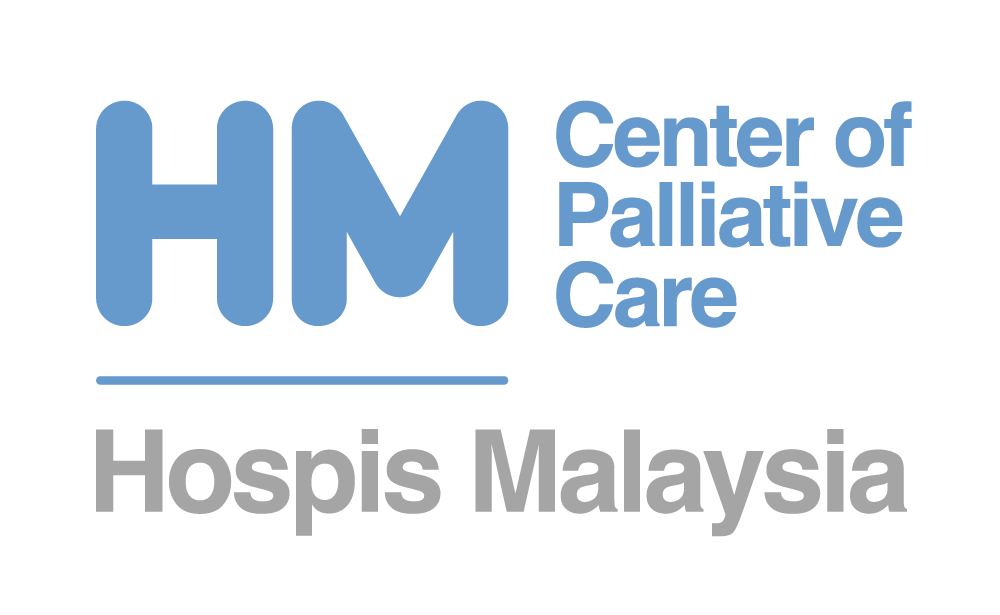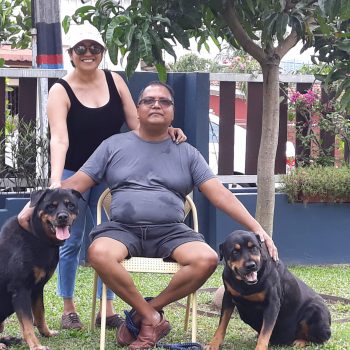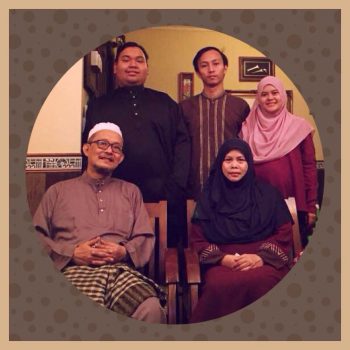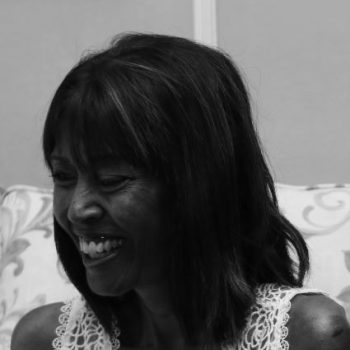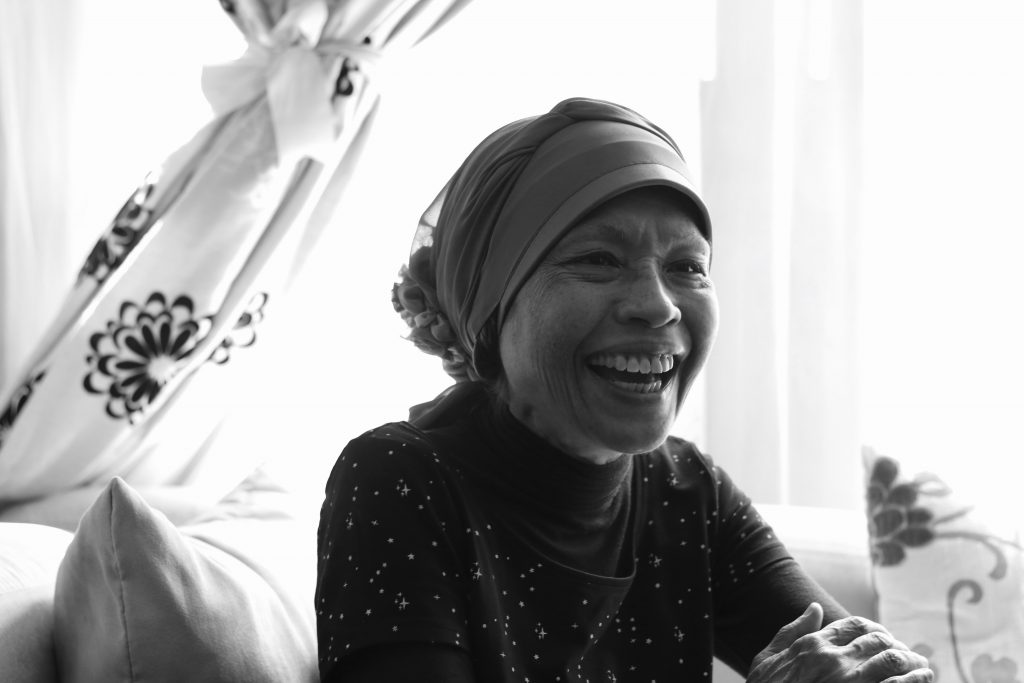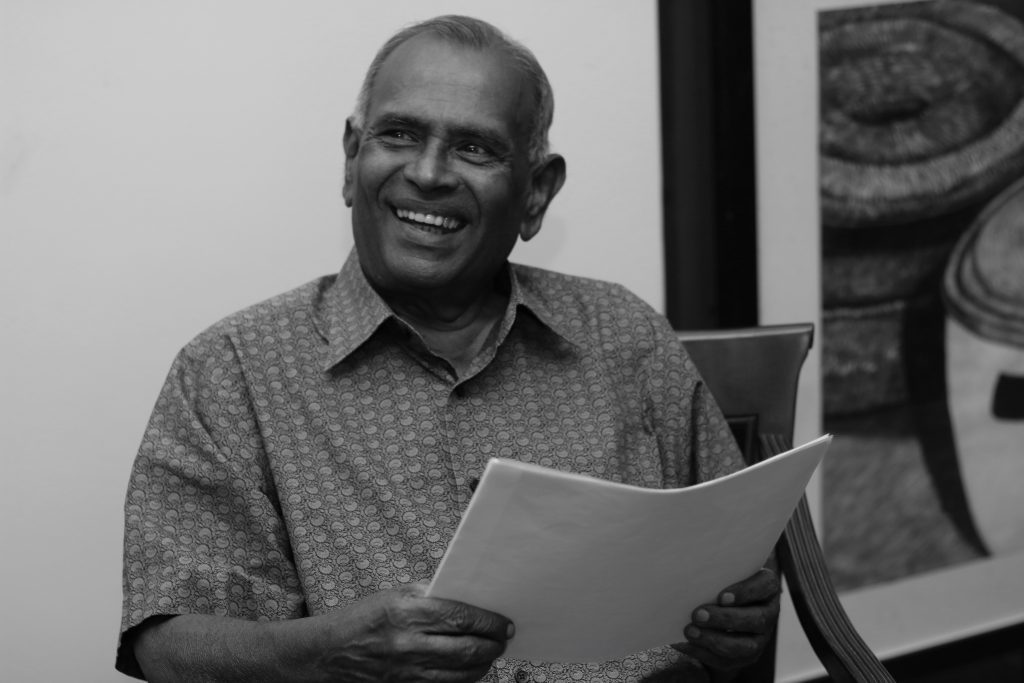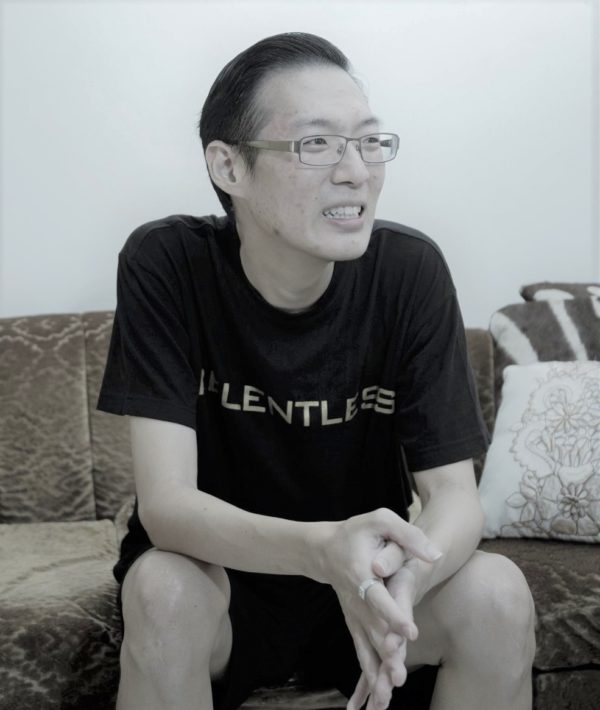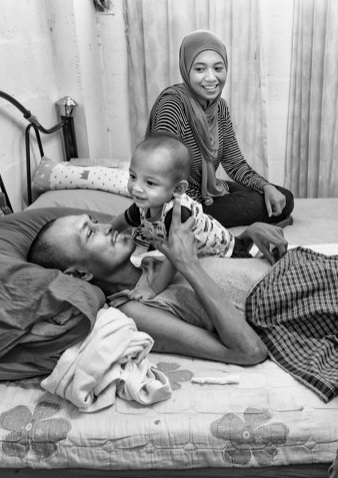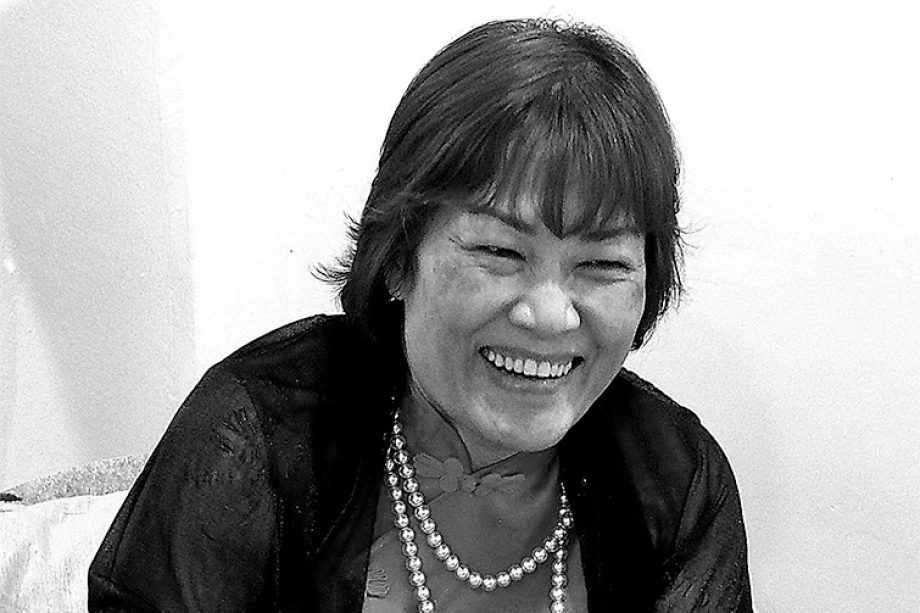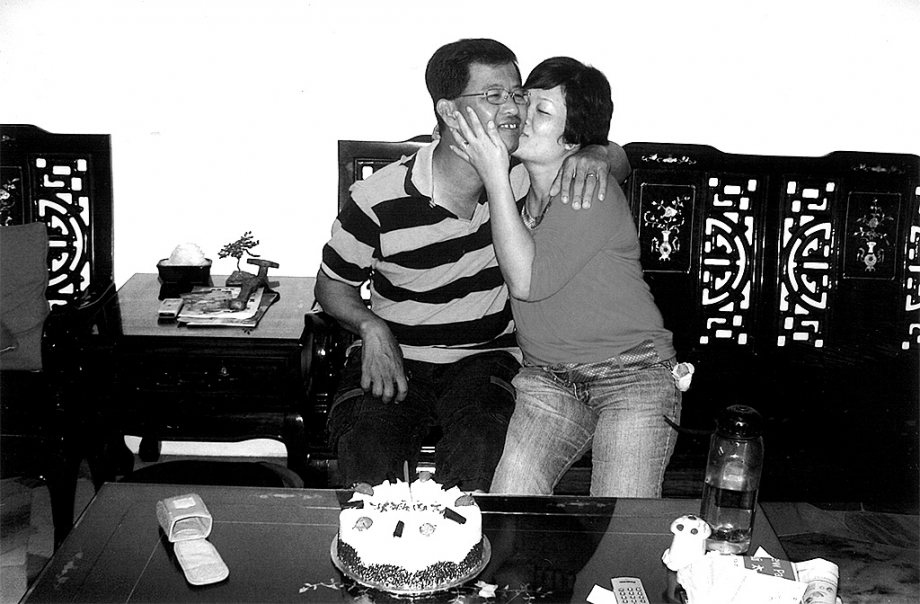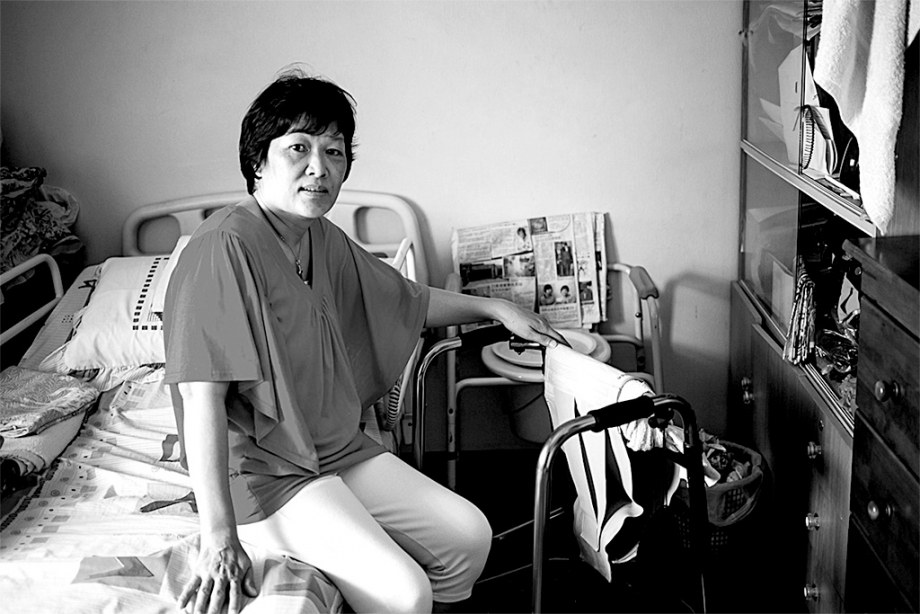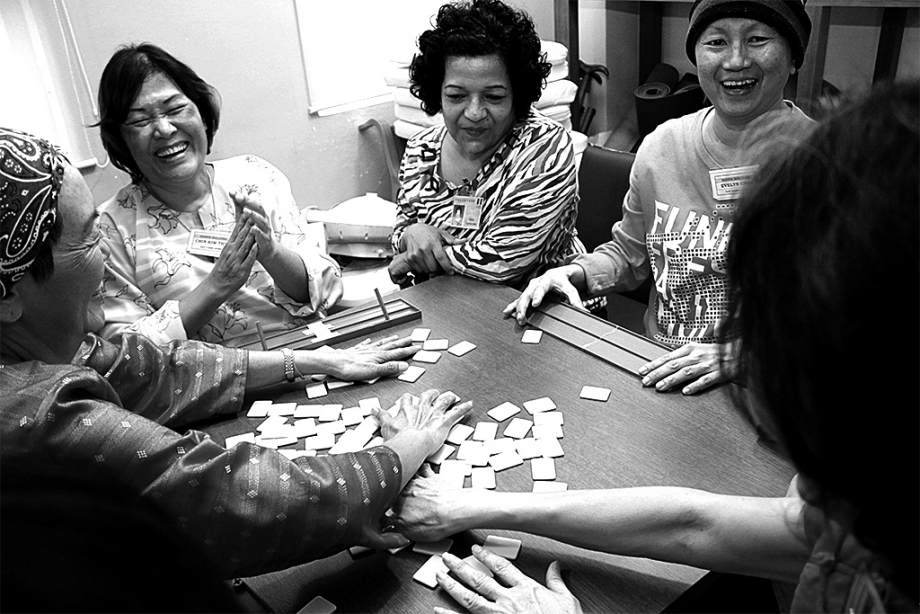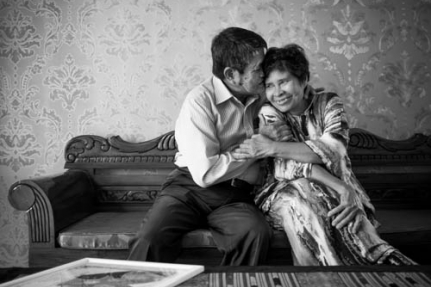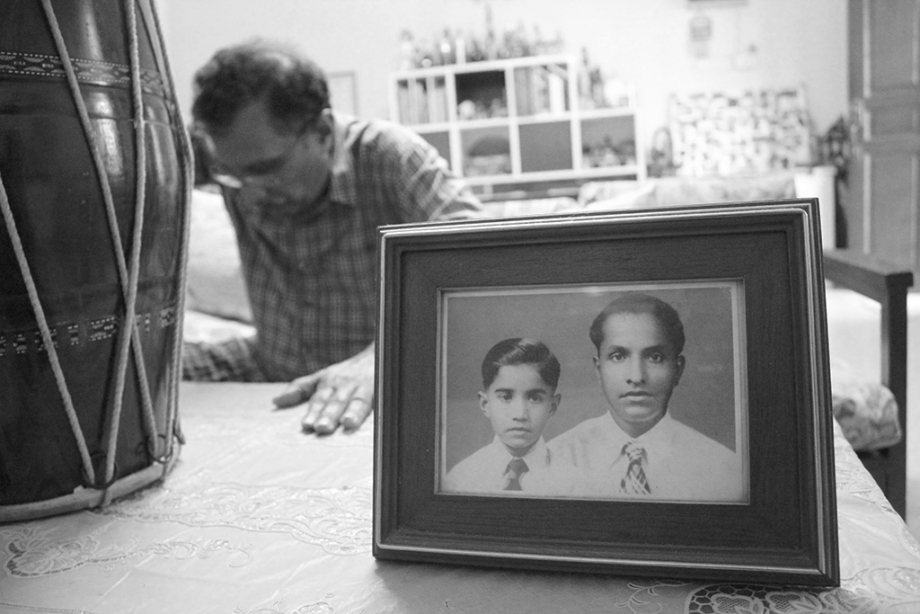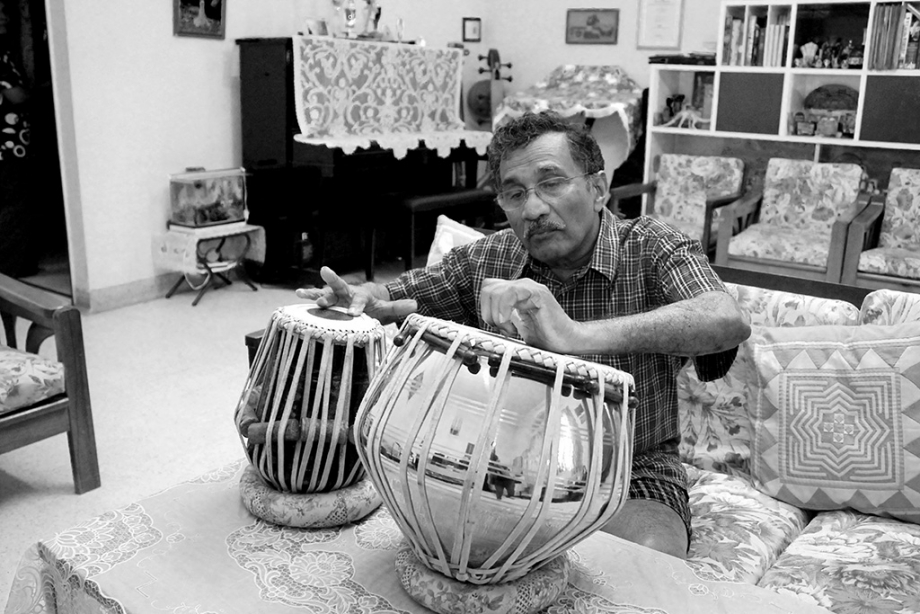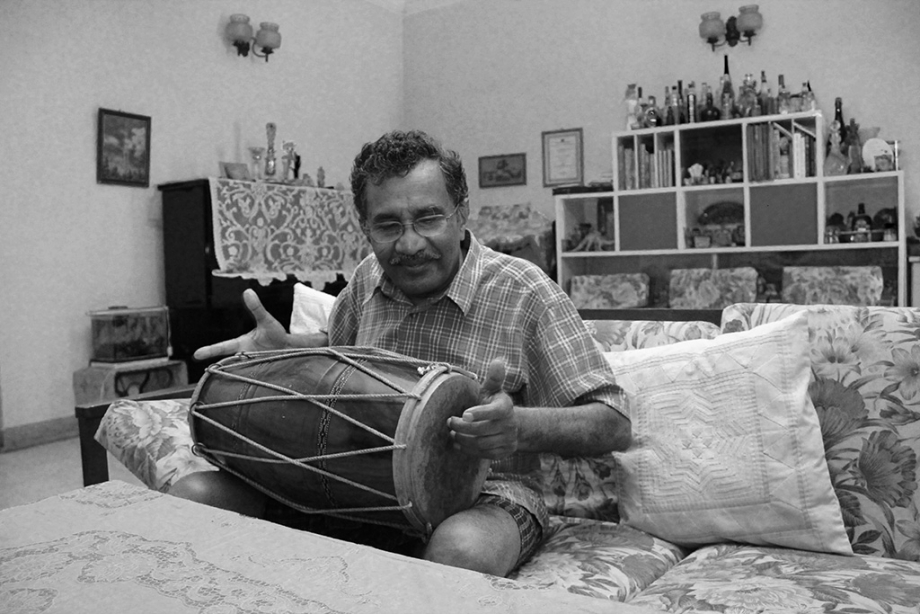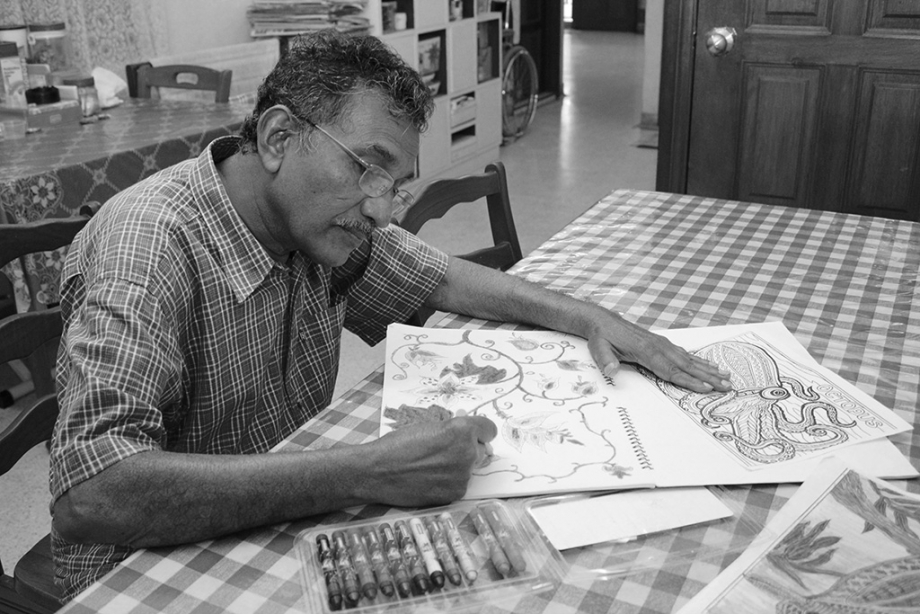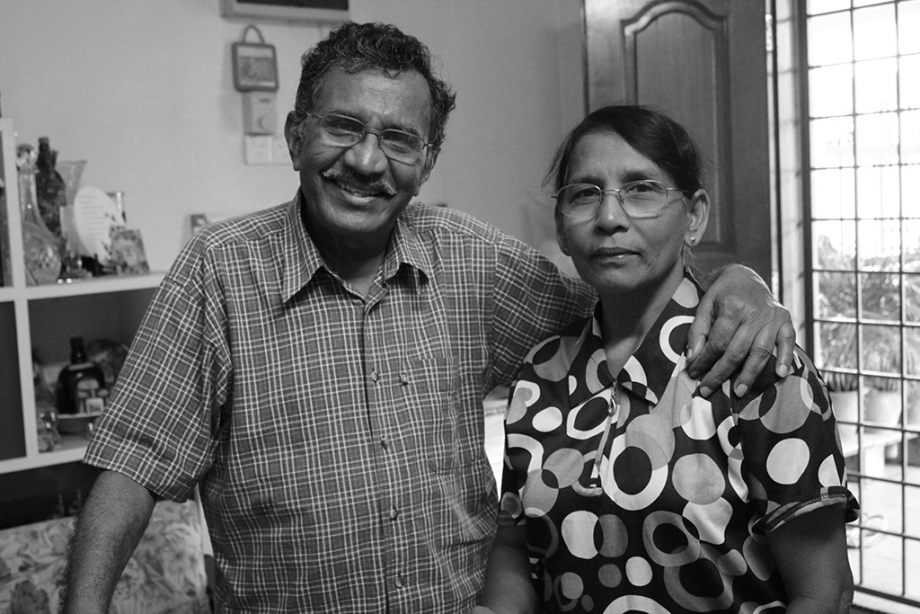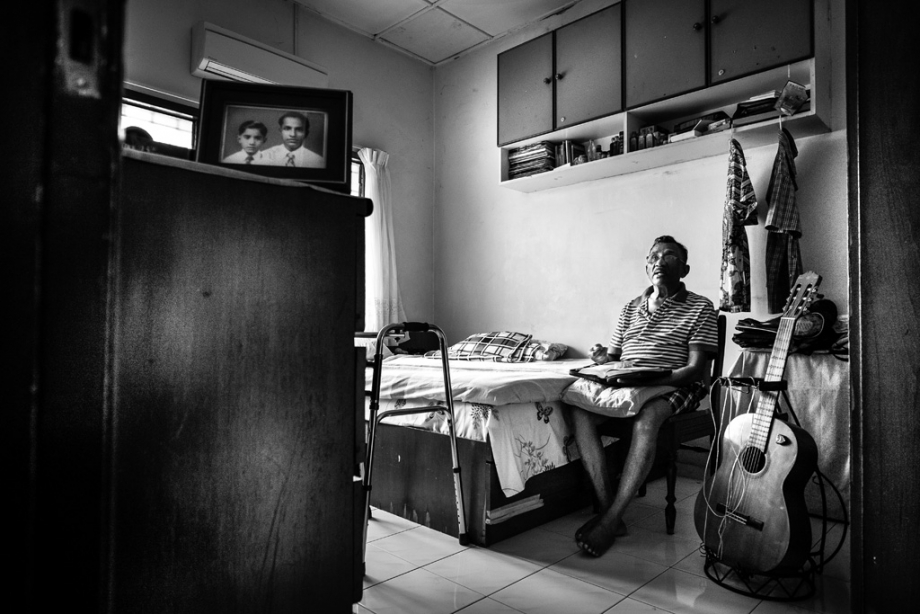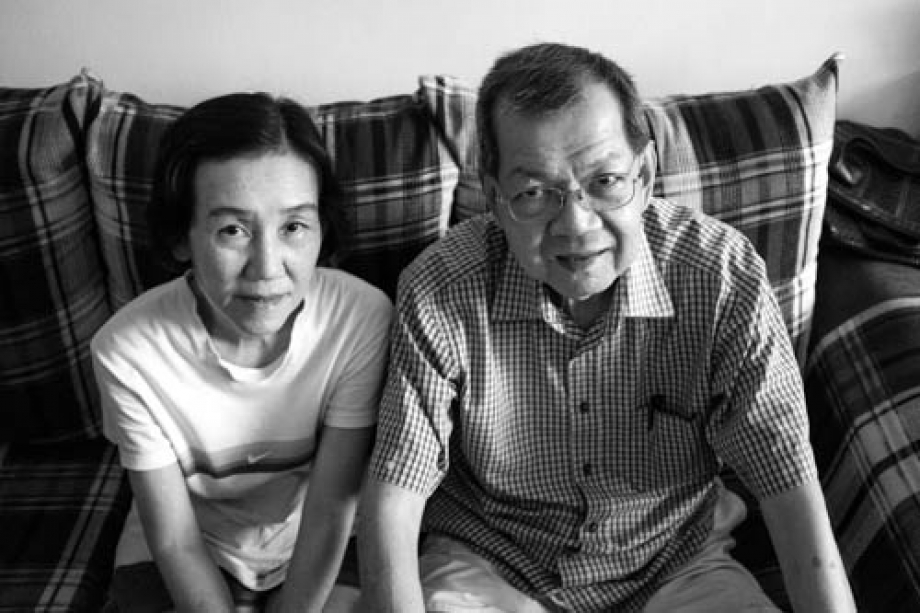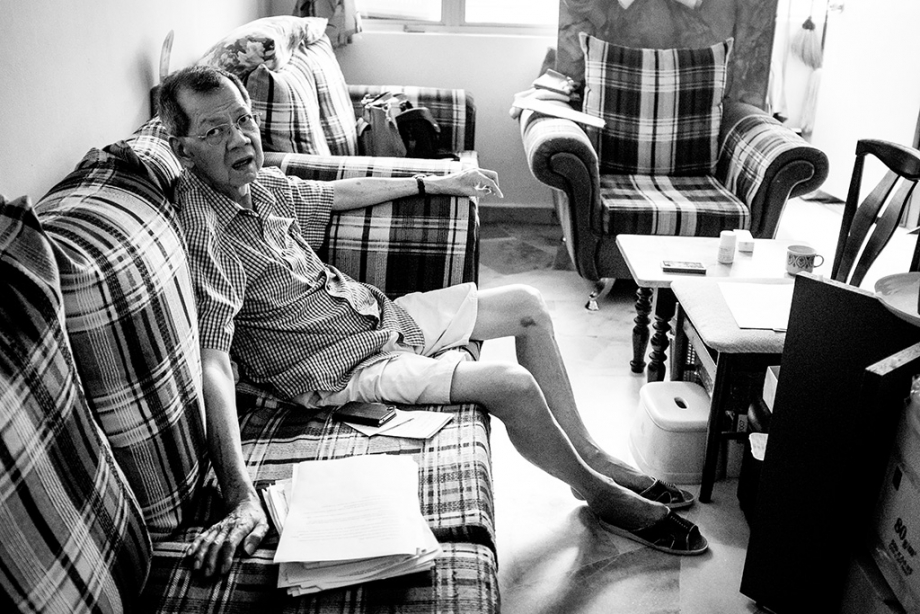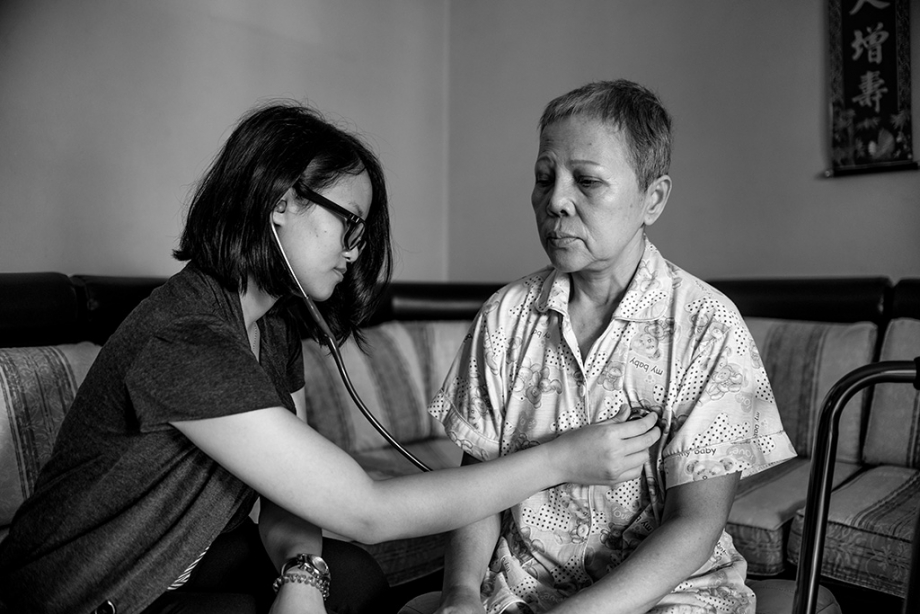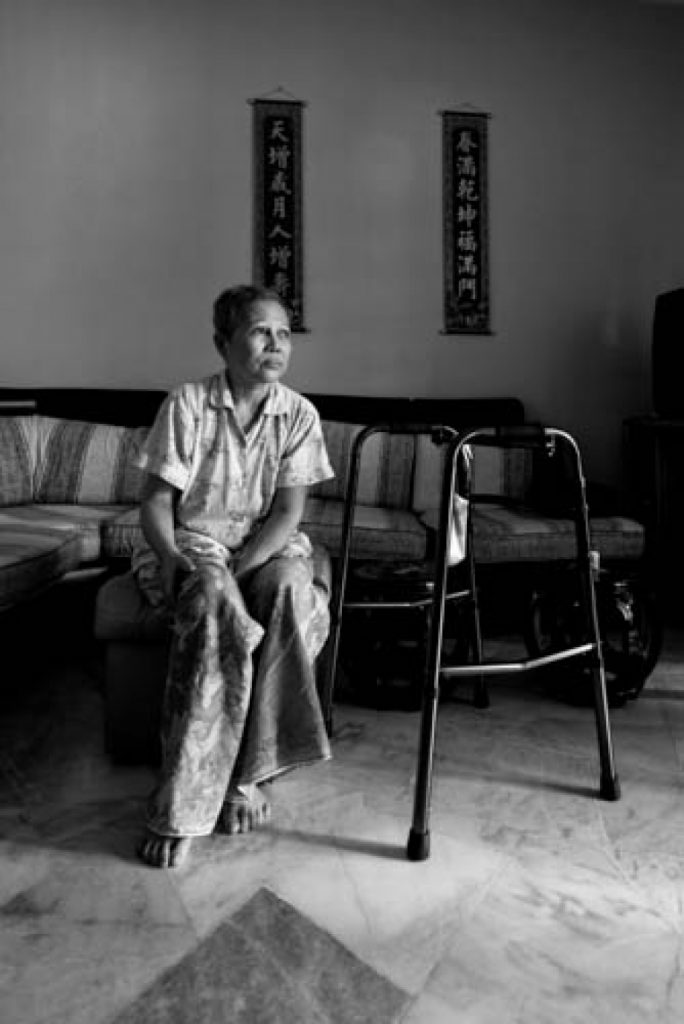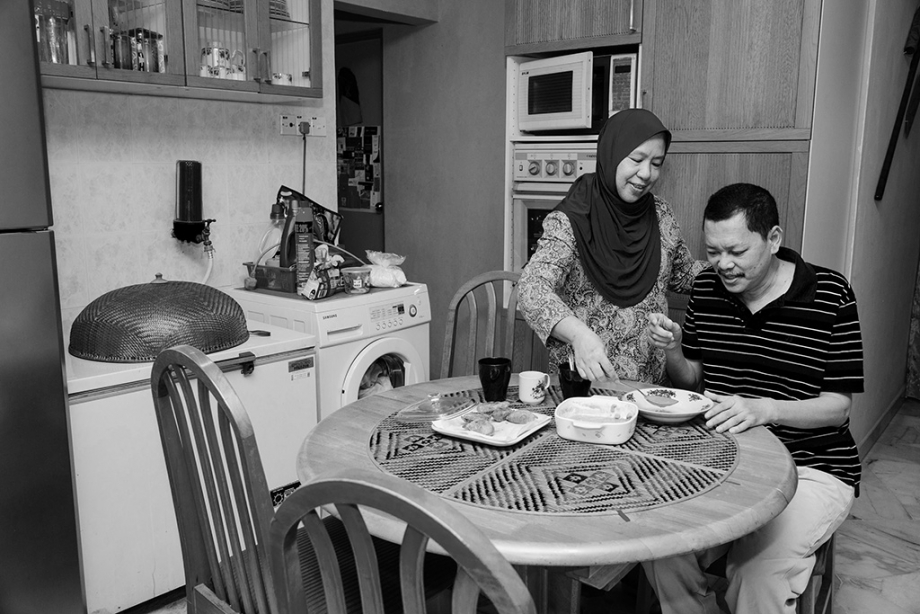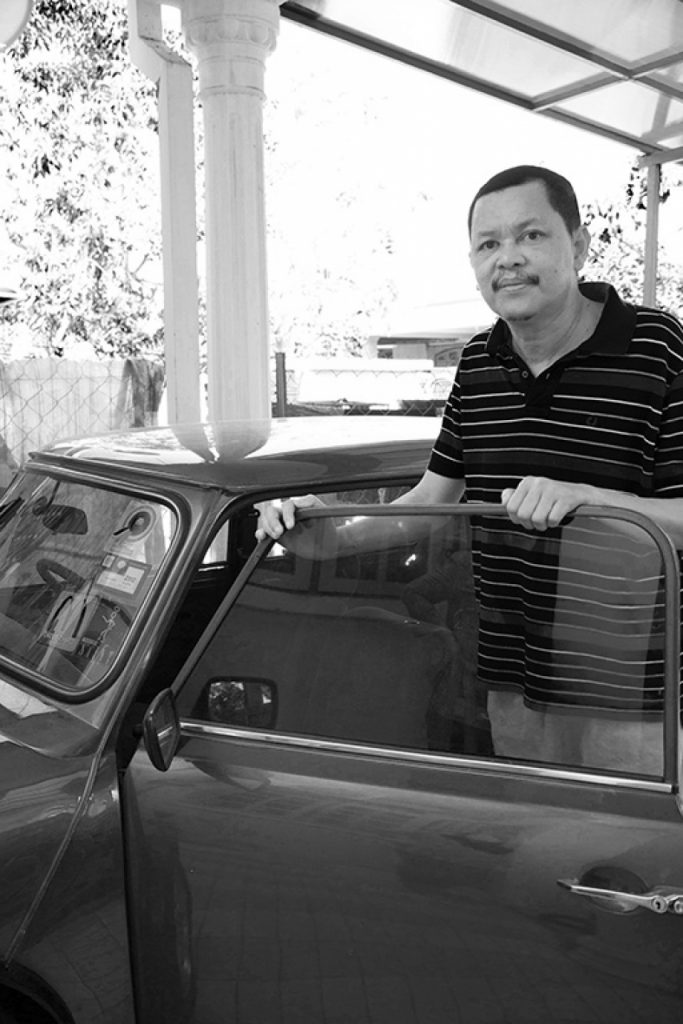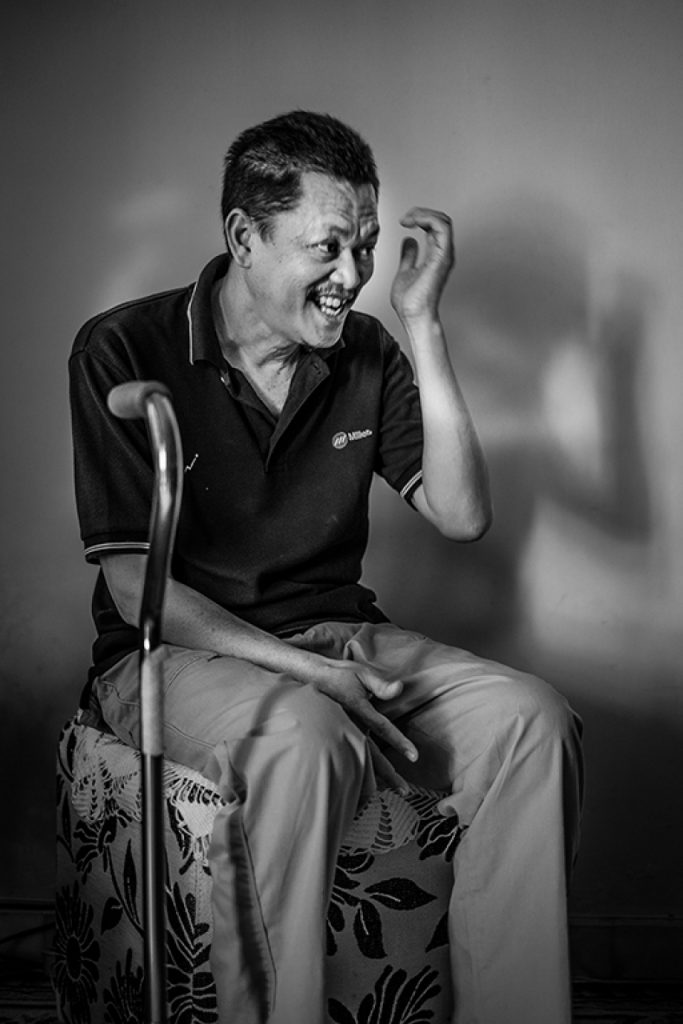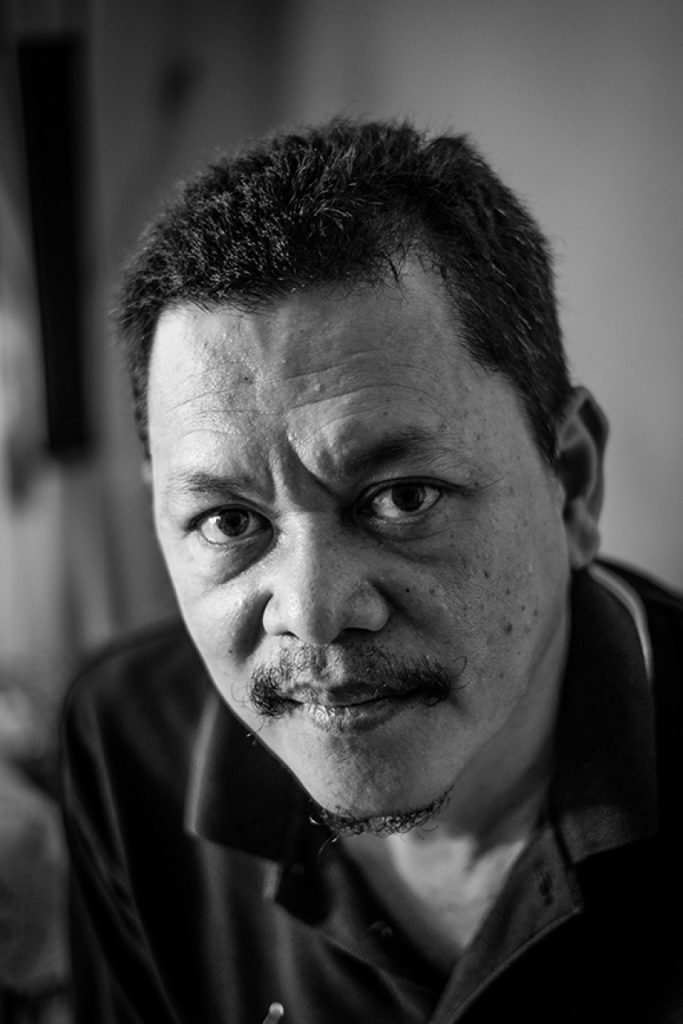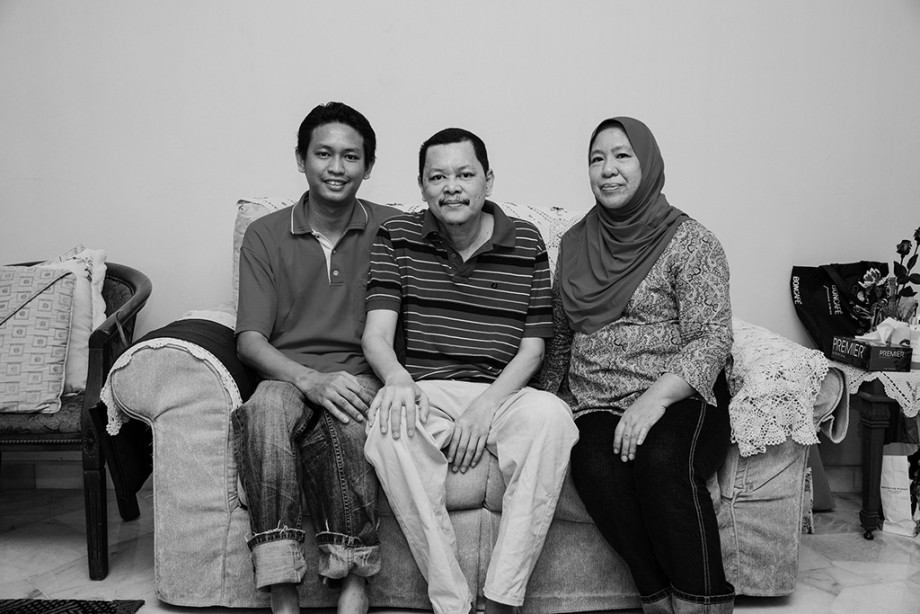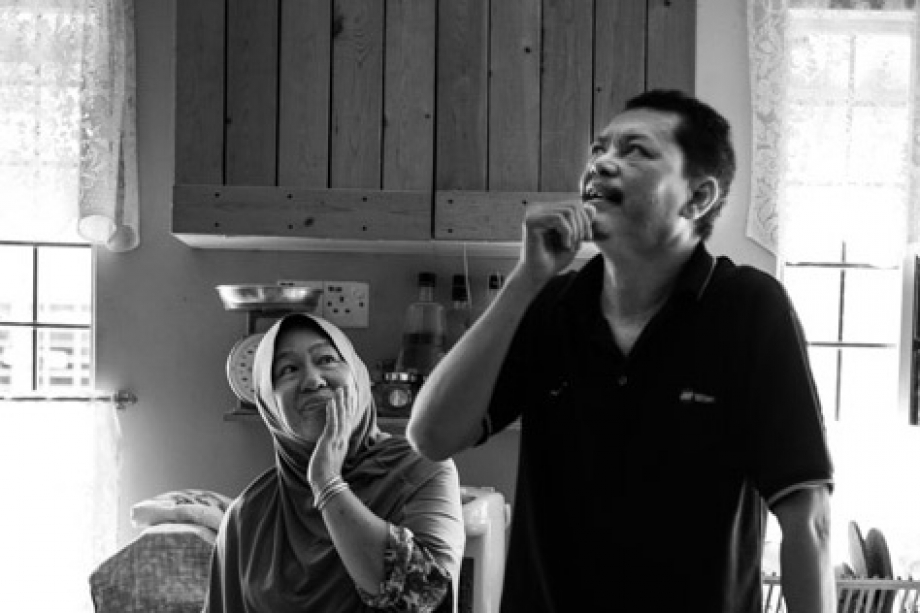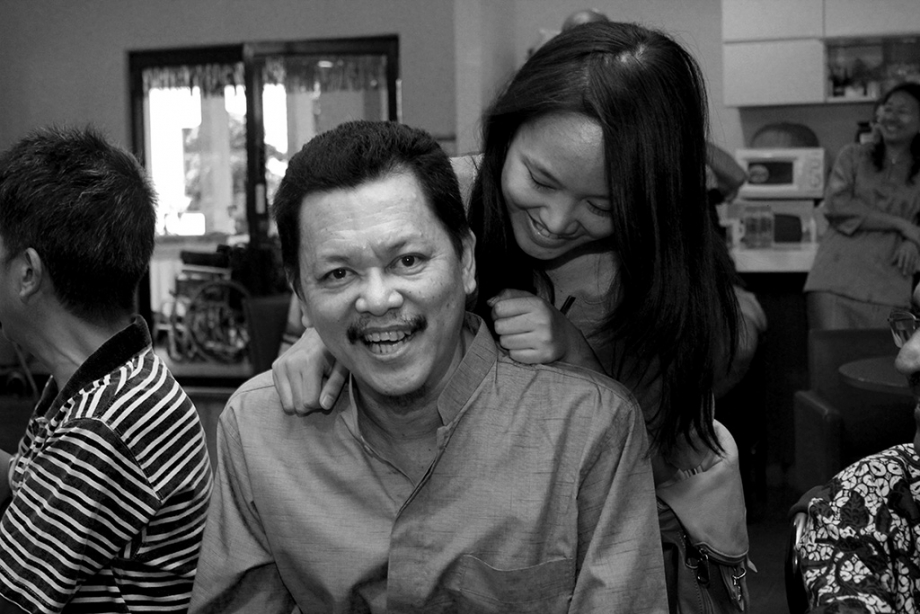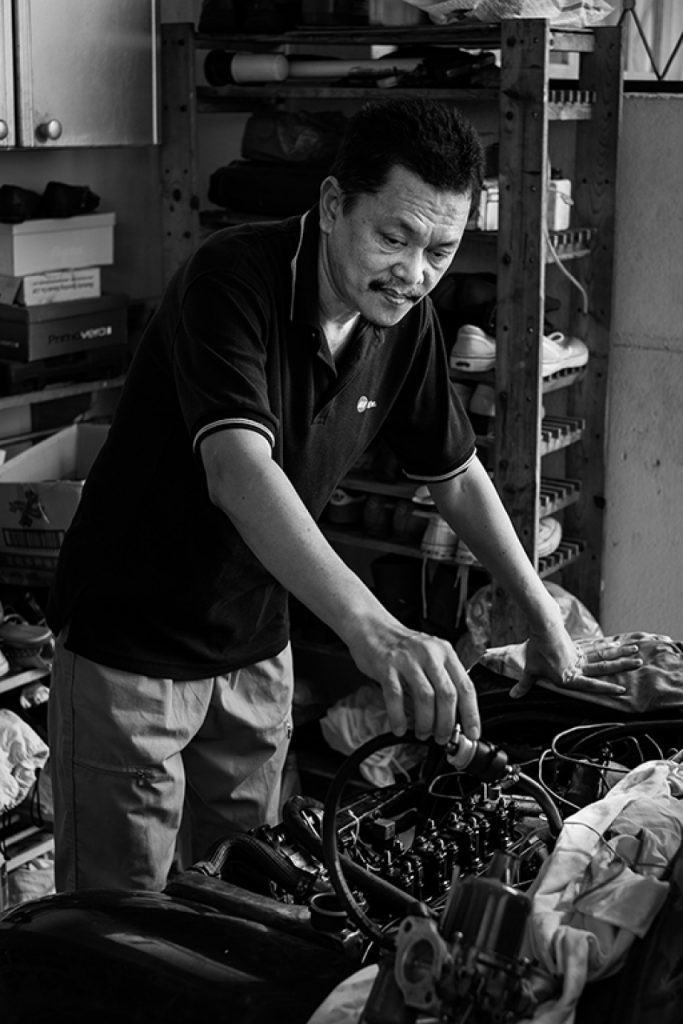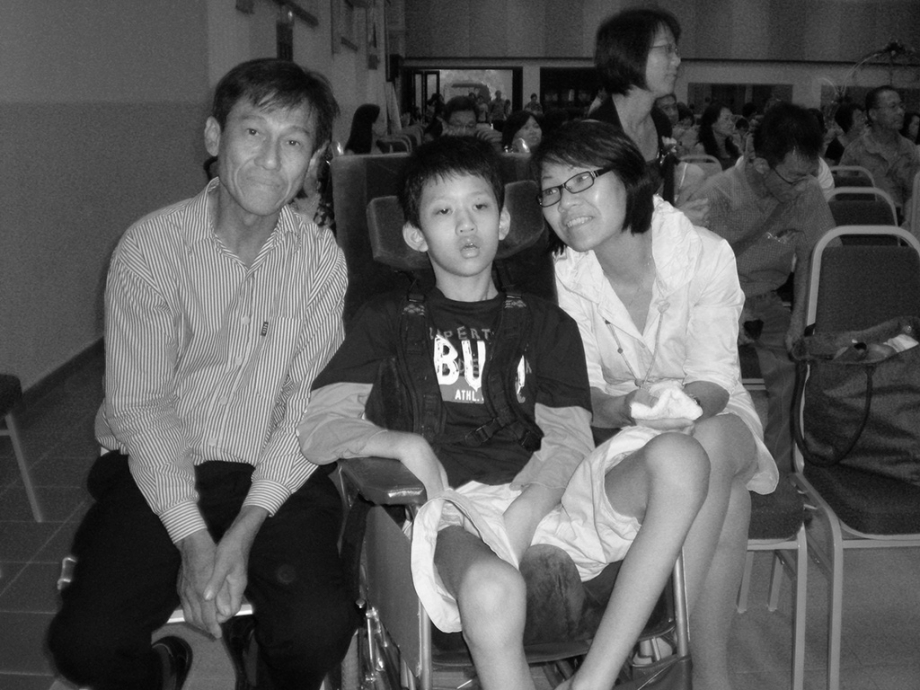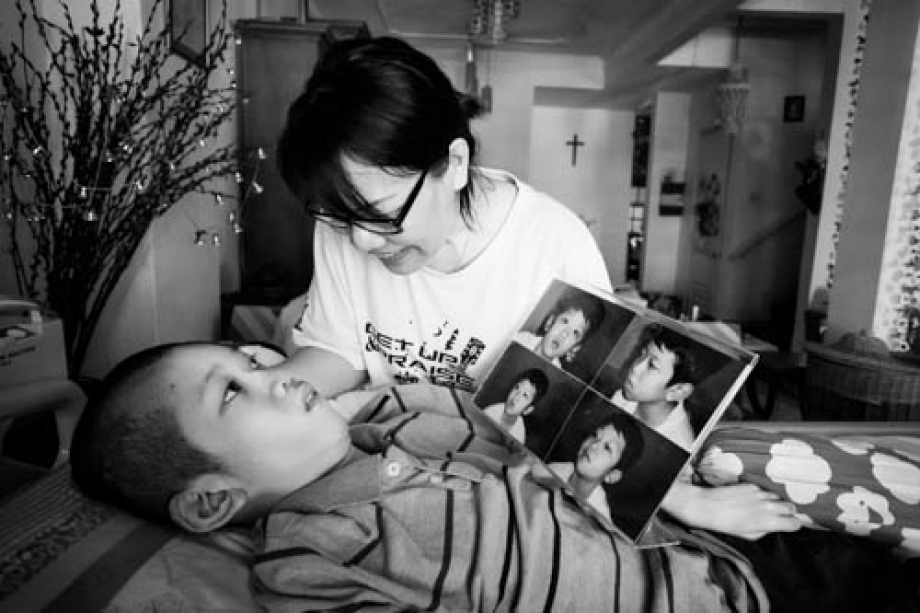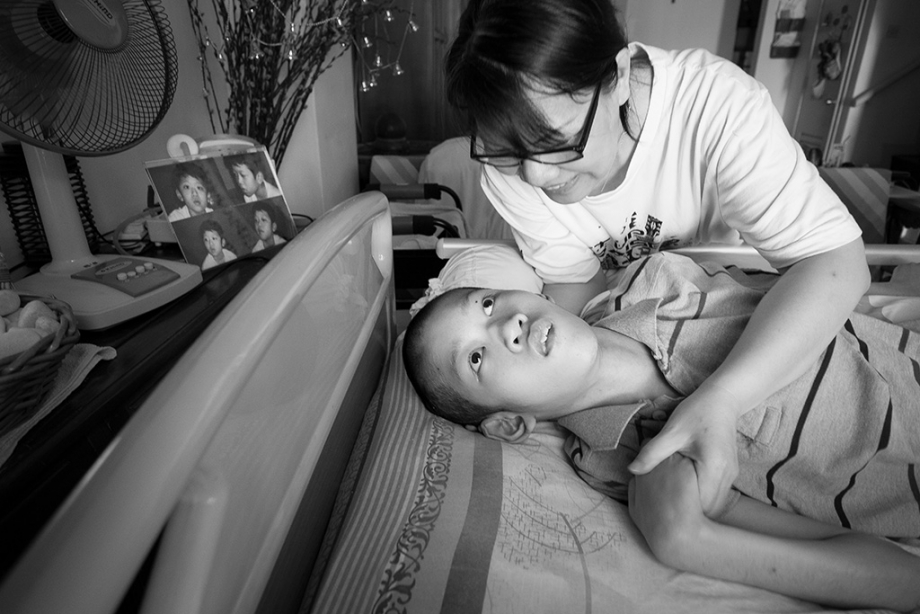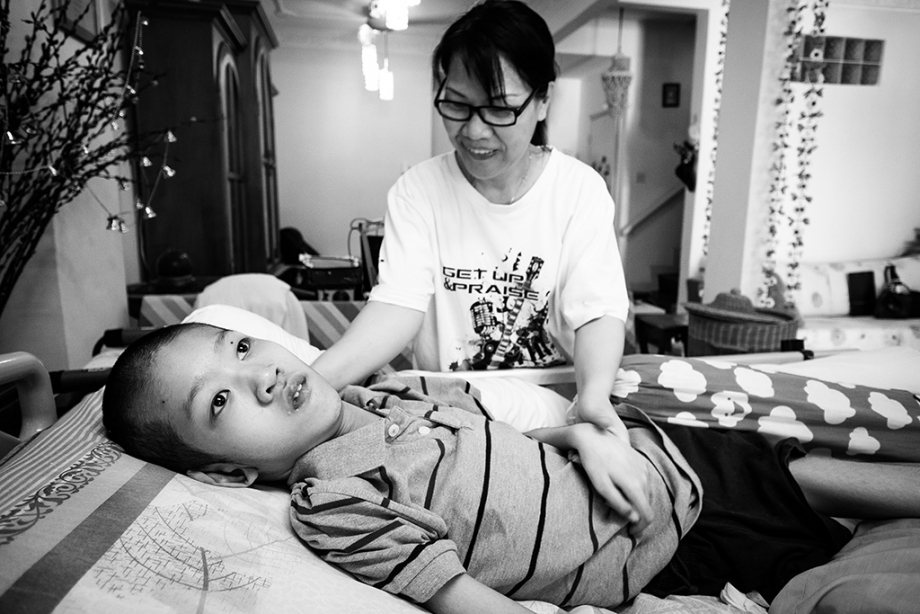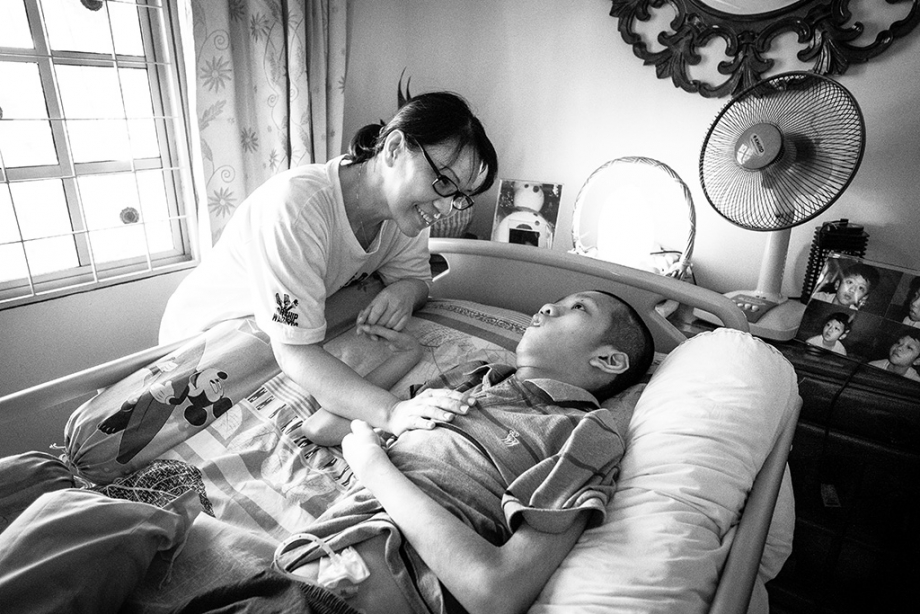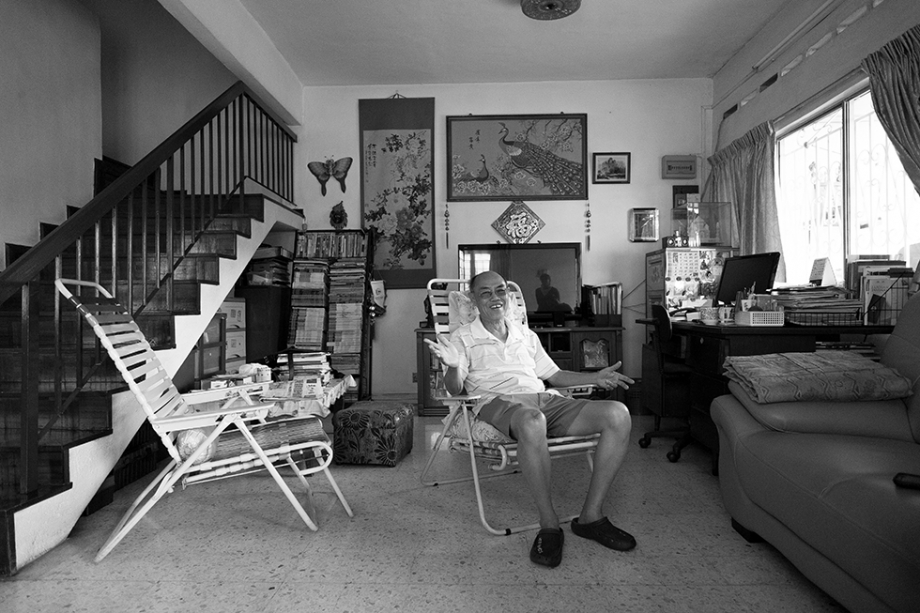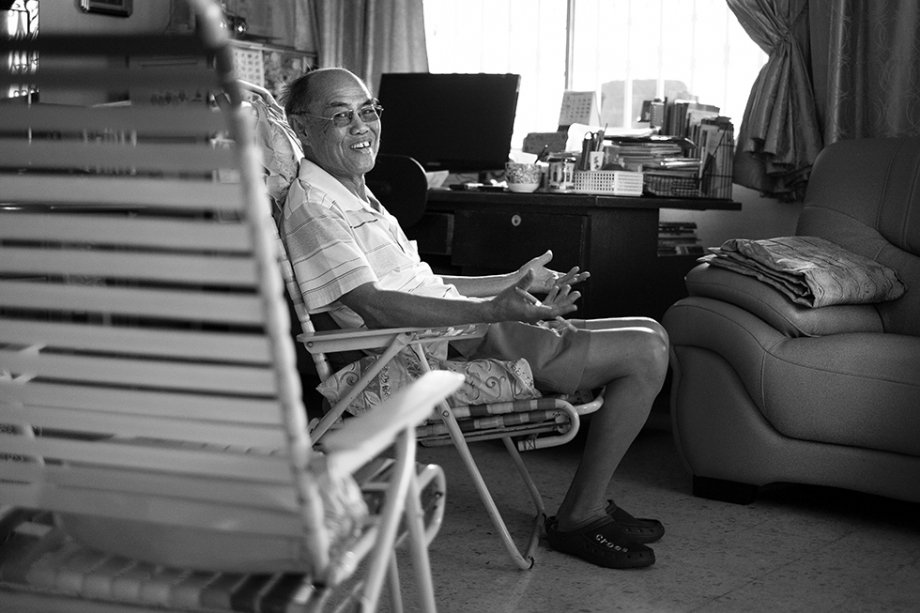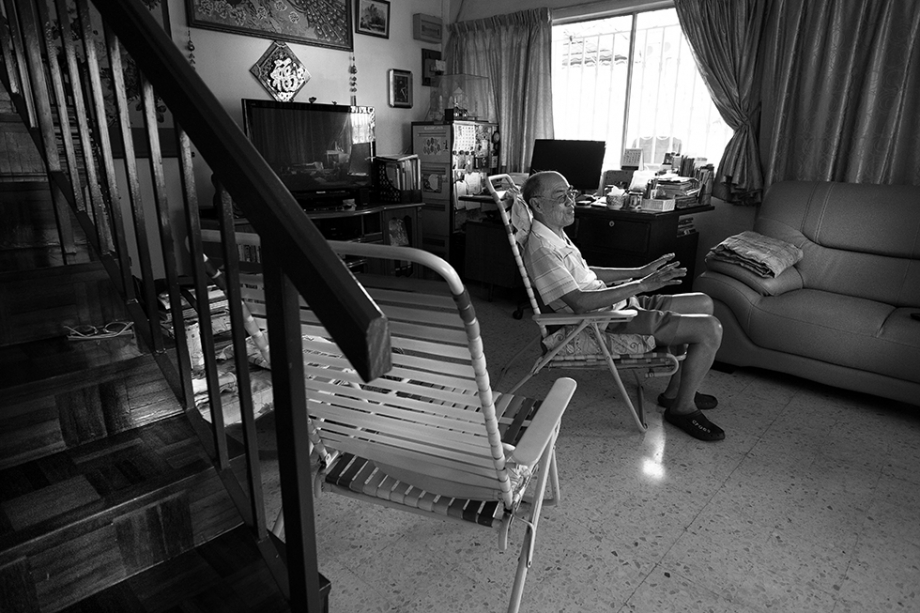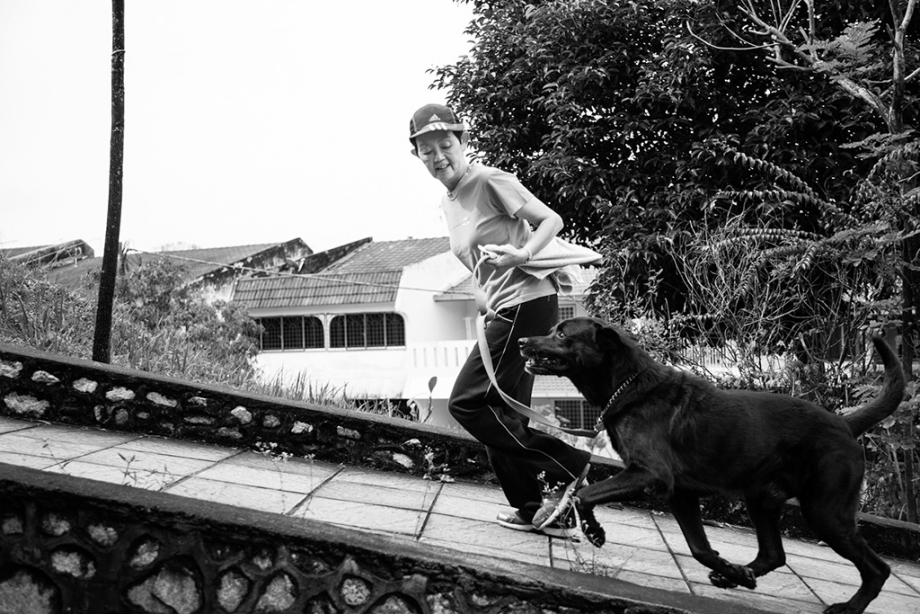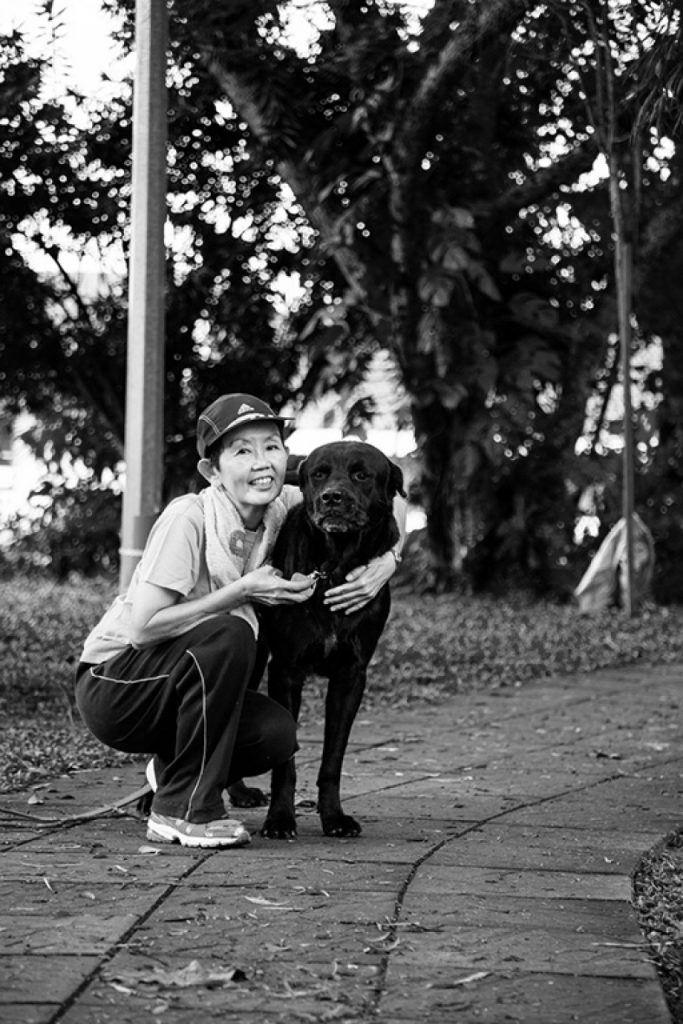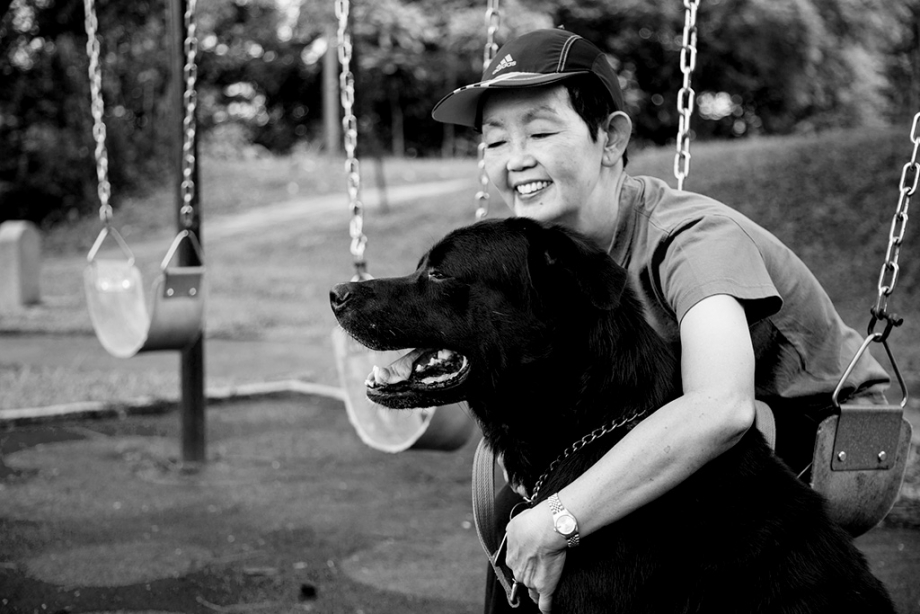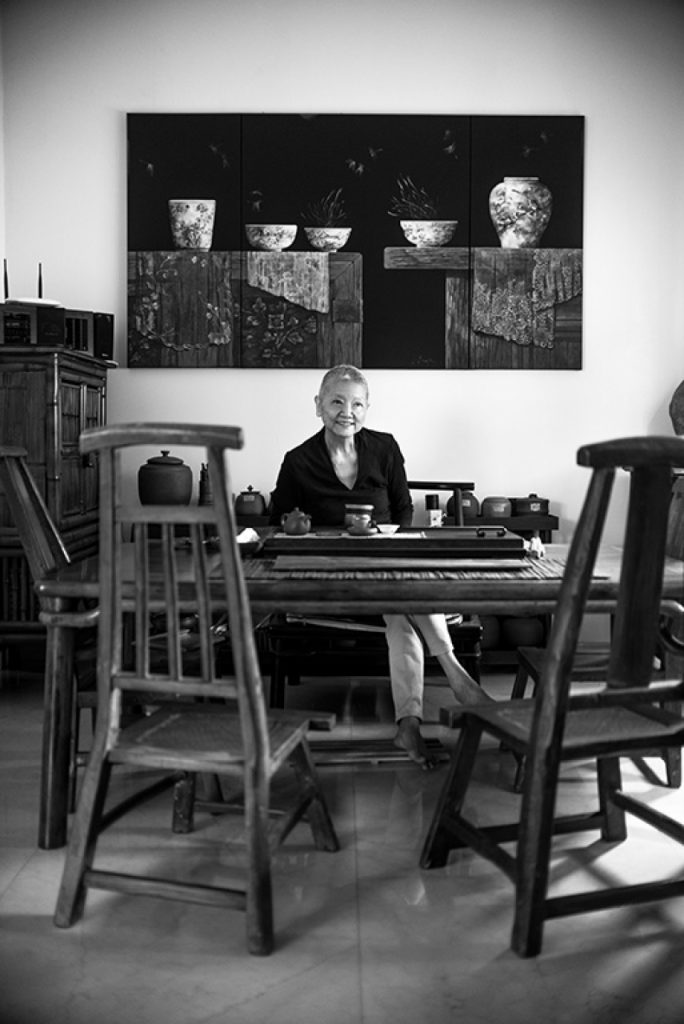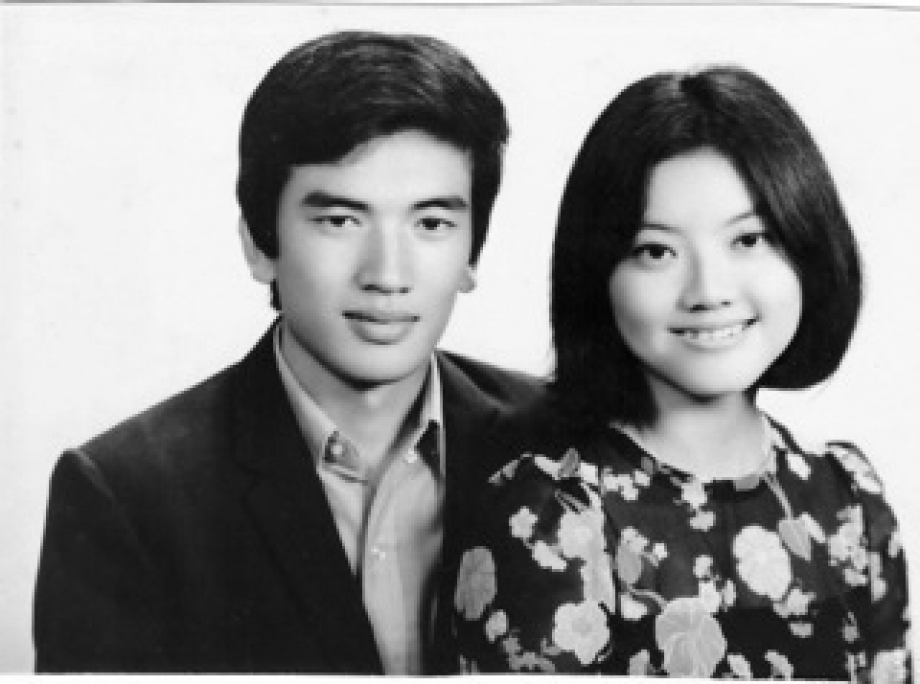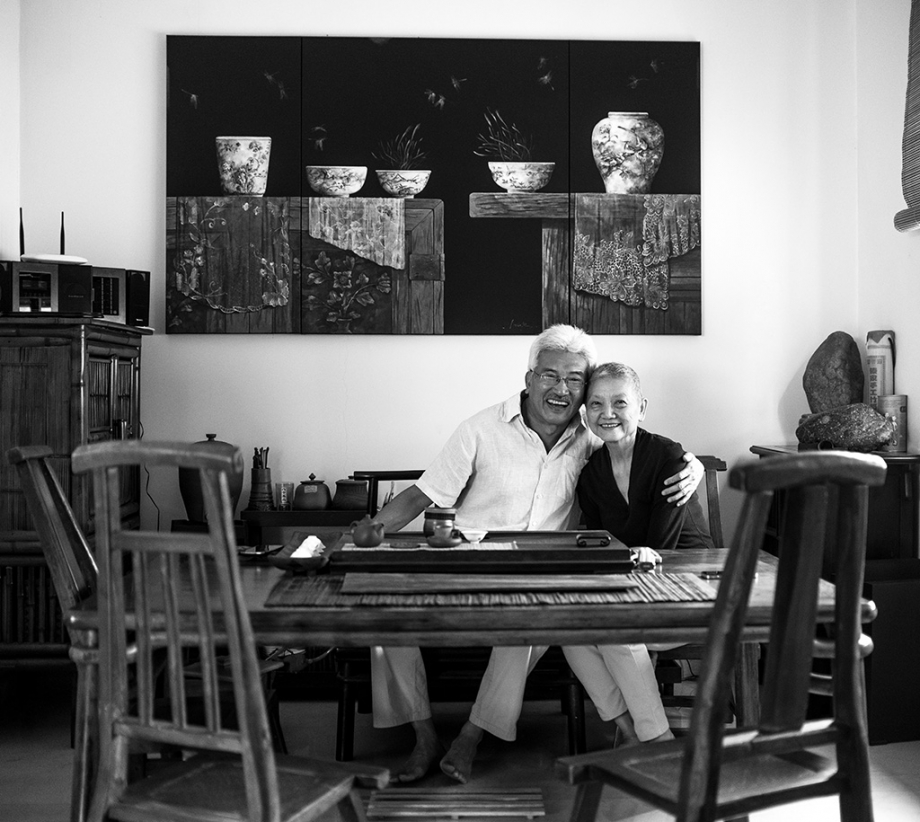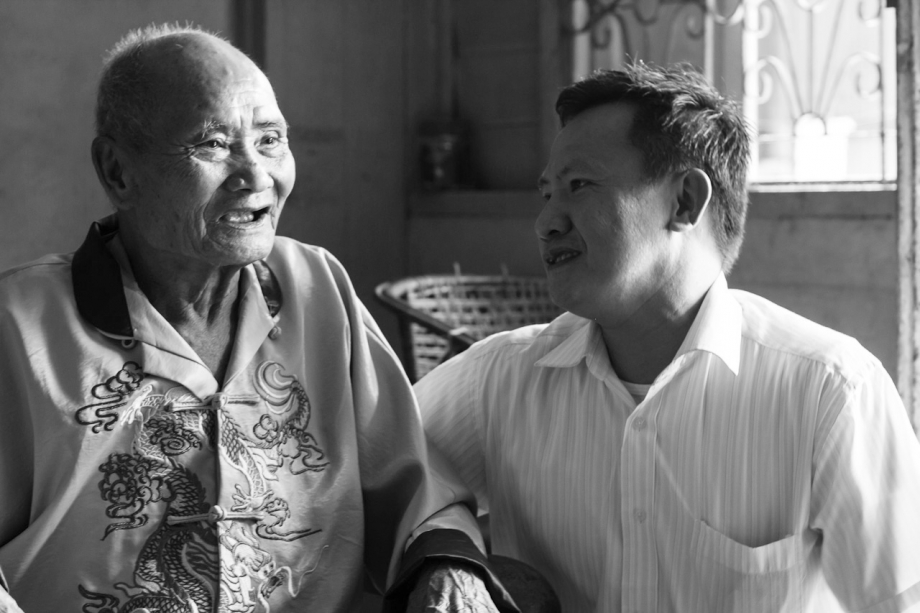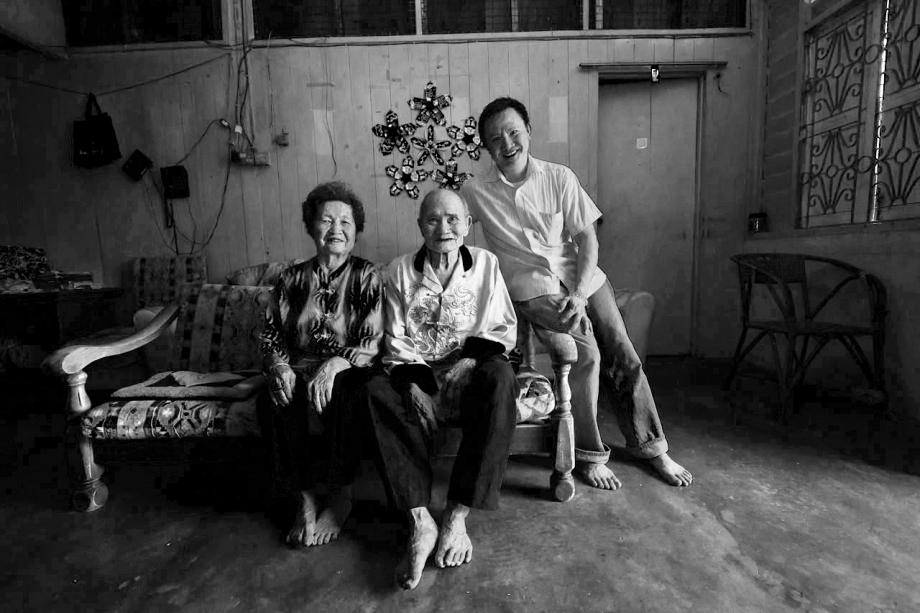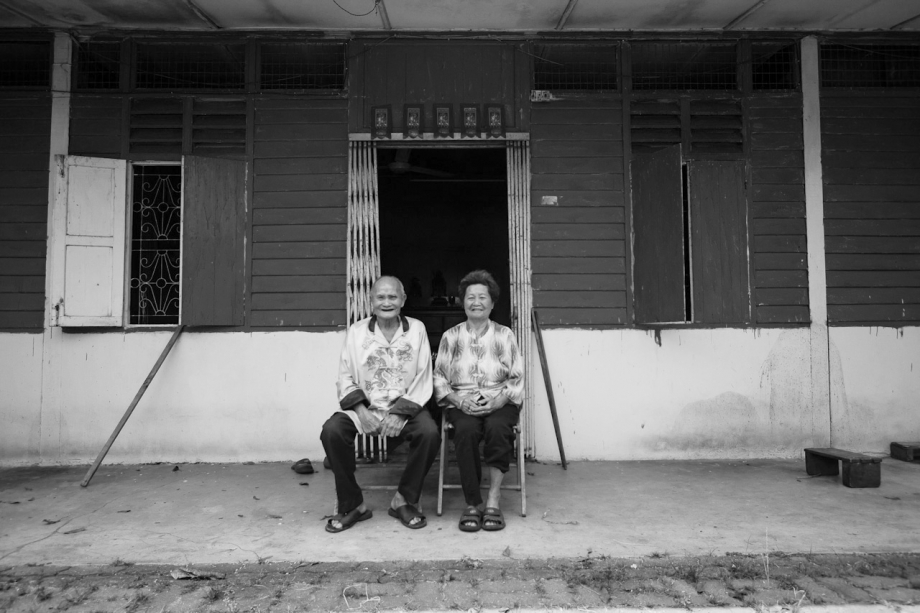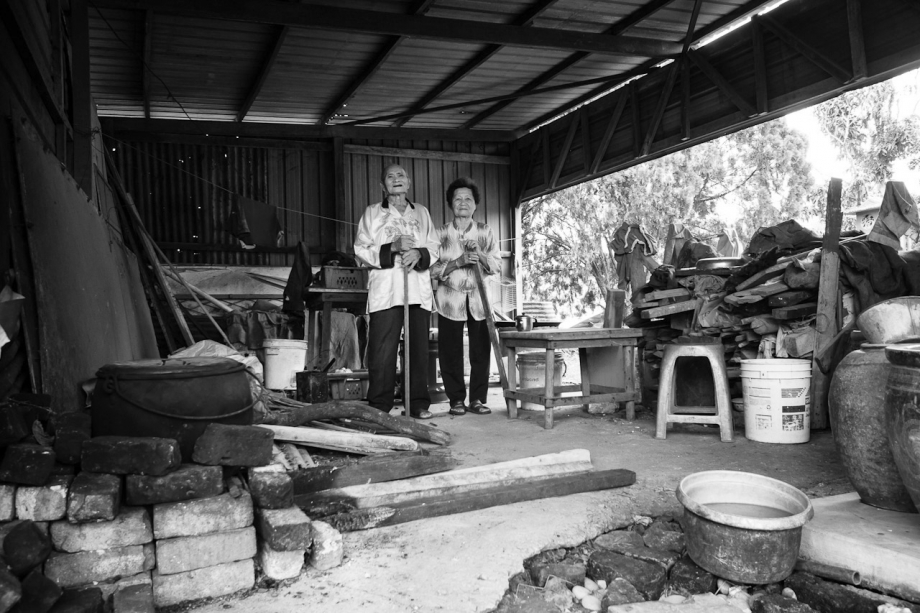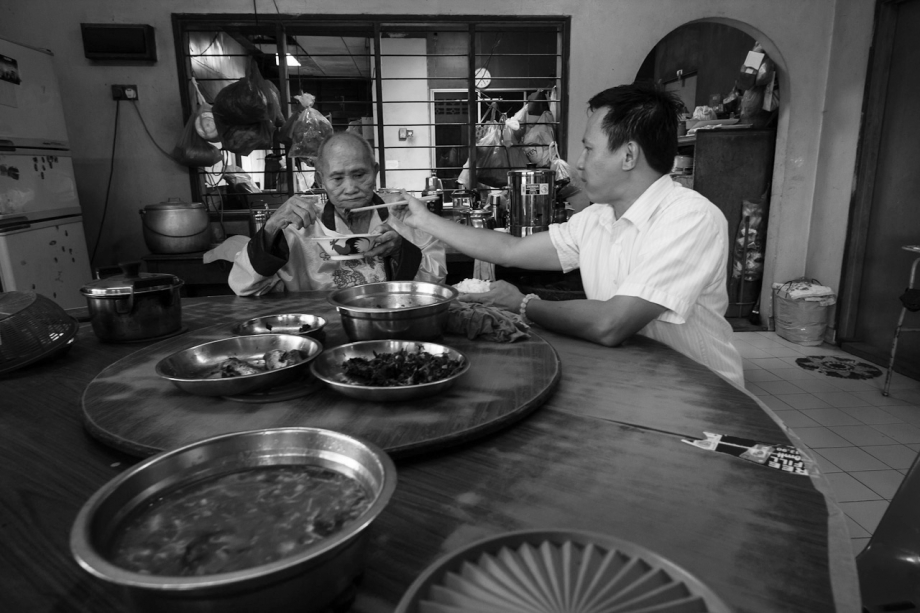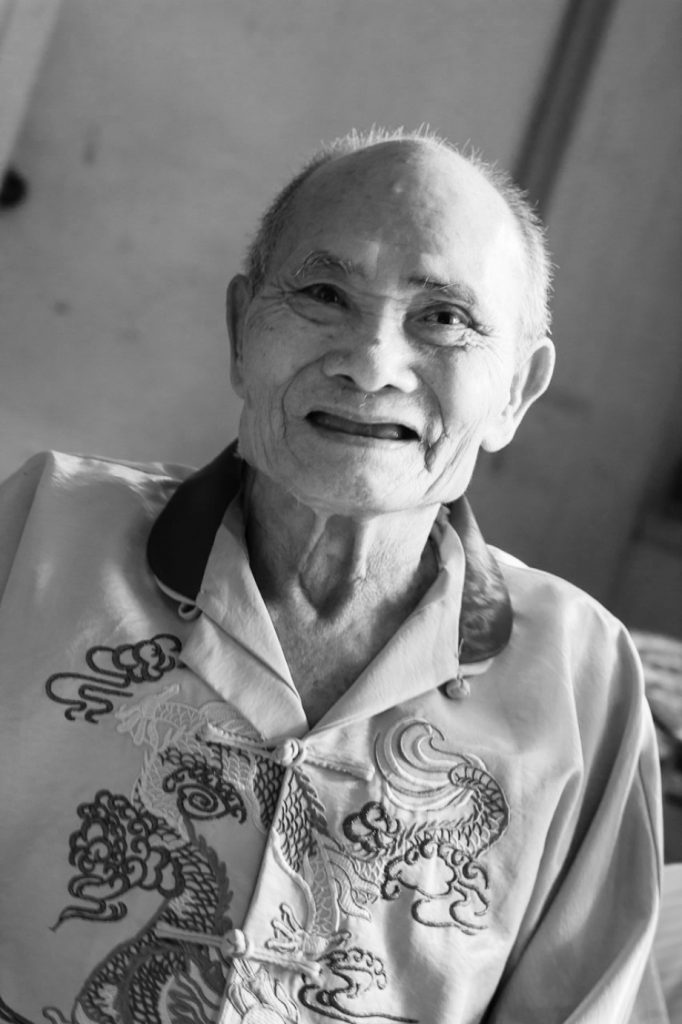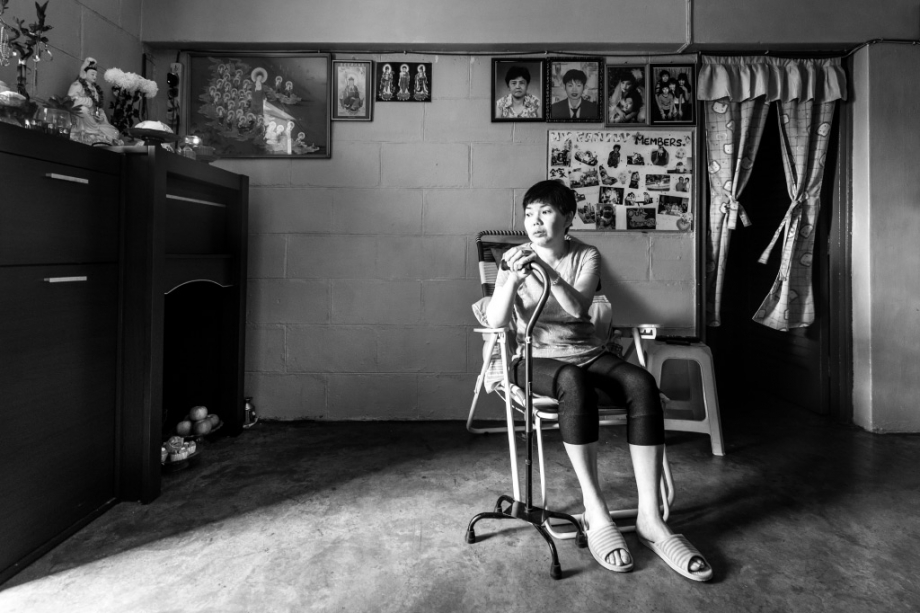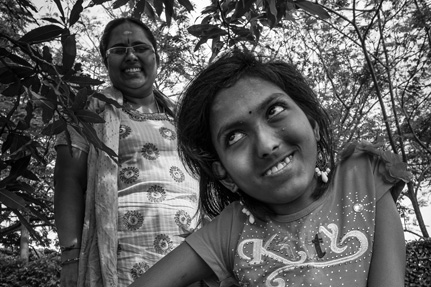Advocacy > Patient Stories
Patient Stories
“I know there is no cure.” Understanding and accepting this fact has helped Senthi choose to do what he thinks is best for him, and to lead a life despite cancer.
“The world came crashing down..” His exact words in describing the moment the news broke and the days and weeks after. But this tumultuous period gradually took a calmer turn, as he kept discussions with the oncologist going and learned more about the disease.
His journey has been one of self-discovery too. “Trial and error” as it has been, but he gets to decide for himself and find out what’s best for him … his way. He resumed work for a while but it was a struggle. So he took up a PhD course. That soon took a toll on him too. Then he found the most common of activity – travelling! The planning itself is enough to keep him excited. Nowadays, he looks forward to every trip he’s able to make with his family.
As guided by Nurse Mastura, he has discussed with his family what he wants when things take a turn for the worse. “If it has to end, it has to end. I do not want further hospitalization and treatment and prolong unnecessary suffering.”
“We must honour the patient’s words.” Tuan Haji did what he believed in despite questions from others who did not quite understand the situation. And it helped him “rewrite” what could have been a story of unfulfilled wishes.
Tuan Haji has come a long way in finding the peace of mind he sought and the comfort his wife deserved. Apart from the emotional rollercoaster they went through upon diagnosis, there were also information gaps and unanswered questions that affected Pn. Habibah’s quality of life at the onset. “There were some big words. We knew, but we didn’t understand. They weren’t explained to us,” Tuan Haji expressed.
“For me, the challenge wasn’t so much in taking care of her,” Tuan Haji said. The emotional part of the journey was the most delicate. “She was very private about her life. If she wasn’t ready to tell others, she wasn’t ready. I have to respect that,” Tuan Haji asserted. Luckily, his wife opened up to him and the nurse from Hospis Malaysia. And with that, many issues were addressed, and that made a difference to how she lived her life towards the end.
“She smiled when we put her back into her own bed,” Tuan Haji recalled as he reminisced the day she came home. “She didn’t expect us to remove the furniture to accommodate her. To me, the furniture has no value compared to what she wanted,” Tuan Haji observed.
Puan Habibah departed from a place she wanted to be in, surrounded by her family.
For someone who loves to travel, soaking up the sights, sounds and scents of unfamiliarity is a joy. But when the unfamiliarity is a hospital bed, being away from home is certainly not the preferred option. Not for Jennifer at all.
Just as she thought retirement would be the perfect opportunity to see the world with her husband, a diagnosis of ovarian cancer threw their lives into uncertainty.
She’s gradually come to accept her condition and spends her days handcrafting glass accessories as gifts for friends and do some travelling whenever she can, like trips to Singapore with her husband to visit her brother. Her wish to travel further afield has not been possible, as her disease progressed. However, when it came to Christmas, she still took the effort to fill the house with everything yuletide. She wanted her husband to have a cosy Christmas. But more than that, it brought her joy that they could celebrate in the warmth of a home they’ve built with so much love together.
Can happiness be planned? Even in the face of a serious illness? For Ku Nur Hanim, perhaps it can. Once she’s able to plan how and where she would like to be cared for, she can find comfort and peace of mind.
Ku Nur Hanim regularly discusses her care arrangements and end-of-life goals with the palliative care nurse and her siblings. These dialogues help keep plans realistic and achievable. And for Ku Nur Hanim, it helps her stick to her plan to be happy.
He solves maths questions, reads Young Scientist magazines, goes for chess competitions, watches TV dramas and National Geographic programmes. Just like any other teenager. Except that he may never know what it’s like to walk.
To the outside world looking in, Yao Wen’s life may seem like a tunnel with no sign of light at the end. He suffers from a genetic disorder that affects his voluntary muscle movement. But he chooses to focus on the “now”. Because he isn’t physically independent, the family sees to it that he experiences quality of life in other ways. So when they were referred to Hospis Malaysia, they found just the support they needed to give him as normal a life as possible.
Yao Wen would like to see his little brother go to school and maybe even start work in the future. But he knows he isn’t getting any better. Yet, he isn’t about to fret over it. In the meantime, he just wants to do what he enjoys doing, like play chess. To indulge the brain game fan in him, the palliative care team arranges for students to visit and challenge him to chess and word puzzles every now and then. He remains unbeatable till today.
“Batu Caves, here I come…” One could almost hear the determination pouring proudly out of his heart. It’s inspiring enough for an 83 year-old to opt for voluntary work at Thaipusam. What more, when he has a serious illness to contend with.
Golf, tea and walks. Jegadeva’s favourite past-times. And nothing would change his mind about changing his life just because he has cancer. That’s why when he was referred for palliative care to support his wishes to maintain quality of life, he didn’t refuse. He was pleased to have the palliative care team help him manage his condition and other health-related matters, as the support has enabled him to live life his way. And that meant being up and about, including travelling by bus on his own to visit his son in Singapore.
There are still a few things he’d like to do. But because of his disease progression, he’s concerned with emergencies. Strong-willed as he may be, Jegadeva is also mindful of not burdening others and the need to do what’s best for him. So he’s been discussing with the palliative care team regularly, as he’s got his sights set on Penang for his wife’s birthday and Melbourne for their grand-daughter’s 21st.
It must’ve been quite an awakening for Samuel. Just as he decided to pursue what he felt closest to his heart – teach Iban youths in Sarawak – his calling was cut short by a diagnosis.
When the family heard it was Stage 4 kidney cancer, everyone was in shock. No one knew what to do, how to move forward and where to go from there. But Samuel knew feeling devastated wasn’t going to make things better. So he agreed to the suggested cancer therapies prescribed by the oncologist and his family supported him all the way. However, the disease progressed. Then some friends suggested palliative care and through his oncologist, he got in touch with Hospis Malaysia.
To them, his quality of life is important. They want to be able to embrace everything that may come their way, good or bad. They’ve even taken the crucial step of talking about end-of-life with the palliative care nurse. A difficult conversation it may have been but it helped them work towards realising his wishes. Despite his condition, he managed a trip to Penang to visit his relatives and friends. It wasn’t just another outing. He got to spend Chinese New Year with the people he wanted to see. For Samuel, it meant a lot
“There are still so many things I want to do with my 1 year old.” Amidst the fear of losing his ability to be the man he wishes to be, lies a determination to be as independent as possible.
When Hospis Malaysia’s palliative care team first spoke to Tham Syarul Syahrul, the focus was him and not the disease. So he was able to talk about his fears, hopes and wishes. “Self-reliant,” he emphasised. It broke him to feel like a “big baby” to his family when he was the one providing for them. The physical pain was also tearing him inside. So when he discovered how he could manage his condition in a way that would give him back the pride and control he deserves, he gladly welcomed the support from the palliative care team.
But for now, Tham Syarul is appreciative of his time with the family and is proud of the milestones he’s made. Small steps they may be, but they’re enough to help him find his dignity again.
Meet Kim Thye today and you’ll be forgiven for not recognising her. Ask, and she will tell you that her secret is in prayer and meditation. And when she sings, oh how she sings! Loudly, joyfully, vivaciously.
Kim Thye loves travelling and has been to quite a few countries. Even when she was diagnosed with the big C, she managed to squeeze in a trip to China. No matter where she goes, she loves meeting new people. And keeping in touch with old friends. She chats with her former classmates (and teacher) regularly on social media.
Upon the advice of her doctor, Kim Thye’s husband called Hospis Malaysia. Nurse Emily made an appointment to visit the family. Kim Thye’s weak legs and lower back were identified as the main concerns. Raymond, her physiotherapist, remembers the first time they met: “She wasn’t really game for anything. However, by just listening and reassuring her everything would be alright, we managed to persuade Kim Thye to give physical therapy a try.”
In about two weeks, Kim Thye could walk with the help of a walker. Within seven months, she climbed down from the second floor (the flat where she lives) to the ground floor. It only took her 30 minutes. “There and then, she found her independence,” says Raymond.
Many people are quite surprised at how much Madam Kim Thye has changed; physically, emotionally and mentally. “When we met and then worked on her rehabilitation process over the months, I really didn’t expect her to improve so much,” says Raymond. “I thought I was only providing mobility exercises to help her move around at home. It took a lot of effort and determination on her part to be where she is today.” Her nurse Emily agrees. After her initial visit, she taught Kim Thye’s family how to properly care for her. “We had to rearrange the furniture in her flat so she can move around easily, and be more independent. The doctors also taught her to how assess her level of pain, how to manage pain and keep it under control,” says Emily. “And sometimes the best medicine is a listening ear.”
Hospis loaned the family several equipment, including a hospital bed, ripple mattress, walker and wheelchair. All these helped remove potential stress and allowed the family to spend quality time together.
“When Terrence (her first son) got married, it was one of the happiest days of my life,” enthuses Kim Thye. “I never thought I would see it happen.” Her daughter-in-law is now 3 months pregnant. Kim Thye has already picked the names for a boy, and for a girl – she doesn’t know its gender yet. And like any proud grandmother, she can’t wait to meet and hold her first grandchild.
Kim Thye takes out her favourite picture. It’s a picture of her kissing Ah Heng. “He’s 4 years older than me,” says Kim Thye. “A typical kampong boy. My father was so afraid that I would end up as a rubber tapper’s wife – he didn’t want me to have a hard life. So he stopped us from going out, and made it quite clear he didn’t like ‘that man’. It was during this time that our love grew and became even stronger. Adversity has a way of strengthening relationships. After a few years, my father eventually relented. We got married in 1984 and remain happily married till this day!”
What keeps her going? Kim Thye points to her spiritual strength, faith in things unseen and yet to come. And what is your advice for the next generation? Kim Thye thinks aloud. “There will always be problems. Stay strong. Never give up. Always remember love conquers all things.”
And the best thing about it all? Maybe it’s an Asian thing but we don’t hug or say “I love you” as much as we should. “My children always tell me, “I want to say ‘I love you, mummy’ but I only dare say it in my heart.” Now they say it all the time. And my daughter hugs me whenever she sees me. She’s not shy at all,” Kim Thye laughs. “My sons too, although I think Terrence is still getting used to the idea.”
She is thankful for the many volunteers at Hospis. ‘They never fail to make me feel at home.” Kim Thye takes out her photo albums and flips through each one. There are a lot more empty pages to fill. And loads of memory on her smartphone for more pictures. “Stay happy, stay positive,” she advises. “Everything will turn out well.”
And what about her personal journey? “Once, long ago, I thought my life was over – I was bedridden, a sorry case and constantly thinking about death. Today, the reality is far from it.” Kim Thye laughs. “Coming to Hospis changed everything.”
Kim Thye passed away peacefully in December 2013.
Even after over 40 years of marriage, Hasmah and her husband Saharuddin are as in love as they were when they were teenagers. Always full of praise for each other, the couple does not shy away from physical displays of affection and are quick to finish one another’s sentences. They have three children and 10 grandchildren, who all visit her often. “We are ‘rich’ with family. But with our children all grown up and with families of their own, I’m alone at home with my husband – and it feels like we just got married all over again,” she says with a smile.
Up until a few years ago, Hasmah was a force to be reckoned with. She managed a contractual cleaning service, while also assisting in the various cycling events organized by her husband. Her work would even have her driving all the way to Johor from Shah Alam on a daily basis. “She’s always been a tough one. Not many women or even men would take on such roles like she did,” says a proud Saharuddin.
However, a nagging pain in her leg led Hasmah to an orthopedic appointment, where the doctor recommended an MRI. The scans revealed a tumor in Hasmah’s lower spine region, and she was immediately directed to the hospital for treatment. She was then diagnosed with lymphoma, and it was revealed during treatment that the tumor had spread further up her spine.
Hasmah spent a whole year in the hospital before being discharged a year ago. As concerned as she was for her own health, she was just as worried about her husband’s emotions. “At first, I couldn’t bear to tell him the news of my cancer. The children and I kept the news from him in my early stages – I didn’t want him to see me at my weakest,” she shares. After showing some improvement, Hasmah finally allowed her beloved Saharuddin to visit her in the hospital. “He’s quite sensitive, and I knew that seeing him sad would make me sad. Whenever he came, I acted like I was better,” she says as they exchange a loving glance.
Over the course of that long year, Hasmah underwent difficult and sometimes painful treatments including radiotherapy. Her husband and children took turns staying with her in the ward. Once again, Hasmah thought more about her family than herself: “I knew the difficulties they went through to look after me, trying to get to the hospital in rain and traffic jams, sleeping on the hard floor next to my bed,” she says. Saharuddin of course, didn’t want to be anywhere else but by her side. “She had travelled everywhere with me for my cycling events, and I wasn’t about to leave her alone in her time of need. I practically lived in the hospital with her for eight months. I did it because I love her,” he says.
Hasmah’s determination to face her illness was further fueled by her family’s encouragement and support from her doctors. “They gave me strength. On days when I wanted to go home and give up, they would talk to me until I changed my mind. On days I didn’t have any appetite, they would make sure I ate to keep up my strength,” she says. Saharuddin was inspired by his wife’s will and spirit. “It was a challenge at that stage. But she listened to the experts, and followed their advice closely. Most of all she’s a fighter; that’s always been a quality of hers,” he says while running his fingers tenderly through her hair.
With the tumor smaller, mobility regained and Hasmah’s overall health improved, she was finally discharged. “We were so grateful that Alhamdulillah, God heard my prayers, as well as the prayers of my husband and children. I was so happy to be home with my family,” says Hasmah. Today, Hasmah keeps her health up by making sure she takes regular trips to the doctor, and has a palliative care team who visits her at home. “My palliative care nurse Vicky looked after me in the hospital, and continued to visit me after I was discharged. She gave me a lot of strength, and I always feel so happy when I see her. ” she says.
Hasmah keeps herself busy these days with rearranging furniture, gardening and cooking for her grandchildren, but she and Saharuddin have a big plan in mind. “We had an idea to organise a fundraising cycling event to benefit other patients, and nurse Vicky thought it was a great idea! We brought it up with Hospis Malaysia, and hopefully we’ll co-organise it with them. We’re thinking of holding it at Lake Bera in Pahang,” says Hasmah excitedly. An inspired Saharuddin chimes in, “My wife has shown me that … as long as you can breathe and move you can still give back to others around you, and to mankind in general.”
With years of experience organising cycling events up to a regional level, Saharuddin and Hasmah intend to add a unique and personal touch to their brainchild. “We intend to kick off the race with Hasmah and I pedaling the first bicycle ourselves – InsyaAllah, it will come true!” declares Saharuddin. “Since we are not able to donate monetarily, we want to help raise funds for those who need it. We hope to get support from various communities to make the event a truly memorable one,” says Hasmah.
Raja Kumar is an affable, friendly man who can chat with a room full of strangers easily. A proud husband and father, he used to immerse himself in hands-on hobbies like photography. A skilled Tabla player, he used to play the classical Indian drum at his local church in Brickfields every Sunday. Religion and spirituality play a significant role in his life.
Raja Kumar recalls the time he first learnt of his diagnosis as terrifying, “I didn’t want to be admitted to a hospital ward full of cancer patients, I wasn’t prepared to identify myself as one.” At the time, the disease had affected his spinal cord. This hampered his ability to walk, and he was confined to bed rest.
“I felt so helpless, angry and afraid”, recalls Raja Kumar. It was at this point that Raja Kumar was referred to his local community hospice by his doctor to receive palliative care from Hospis Malaysia along with the regular treatment he would get from his doctors at HUKM.
Palliative care aims to ensure that the patient lives his or her life well. One of its main goals is to make sure the patient is as distress-free as possible, whether it is because of pain or emotional problems.
“Raja Kumar took the mobility exercises I taught him very seriously. His diligence in practising those exercises daily eventually helped him to walk with the help of a walking frame. His once distressed wife and children now feel more comfortable and able to care for him based on the carer support received as part of his palliative care,” Raymond, his physiotherapist says with a smile on his face. He adds, “Look at Raja Kumar today – he is lively, looks sharp and is alert, and is confident!”
Raja Kumar used to spend his days at home alone when his family was out at work or school. He now attends weekly daycare sessions run by Hospis Malaysia. “Attending Day Care is the highlight of the week for me. I really look forward to Thursdays when a volunteer picks me up and drops me off from my home,” beams Raja Kumar.
“Being able to socialise and meet others with similar issues as me helps fuel my positivity and good spirits. It gives me a sense of purpose, something to look forward to. I don’t hold the same reservations I once had with spending time in a room full of cancer patients,” shares Raja Kumar.
These days, Raja Kumar’s hobby is watching Tamil television drama series. The dramas he watches mostly revolve around family stories. He relates to them and feels that they hold good moral values and ideologies that he adopts as positive ways in how he wants to lead his family.
The squares of Billy Wong’s shirt match the chequered cushions in his cosy living room. A wallflower, though, he is not. Billy Wong is an outgoing, charismatic man who is well-loved for his friendliness. The retired licensed insurance broker is more than happy to share his story about what it’s been like to live with lung cancer since 2012.
Besides crediting his religious beliefs as a source of serenity, Billy also draws strength from his loved ones. “Different people have different goals when they fall ill. I’m not rich, and so I can’t travel for example. For me, it’s my family that keeps me going,” says the loving husband and proud father.
Billy’s approach to coping with his illness was to learn as much as he could about it and understand what his treatment options were. “I’ve spent a lot of time researching to prepare myself to cope with my disease and learn how to take my medication,” he says. Hospis Malaysia helps keep his symptoms under control and provides an outlet for Billy to socialise with other patients outside of his home environment.
Billy’s flair for writing and a keen interest in research fuels his goals of reaching out to support groups and sharing information with other lung cancer patients. He also plans to write a journal on his lung cancer research. “Most of all, I want to be able to share with other people what I’ve learned, with the hope that it could be useful to them,” he says.
Billy Wong passed away peacefully in April 2014.
While waiting for her grandchildren to get ready, Madam Cheang quietly eats a cucumber. When they are dressed in their school uniforms, she asks them to join her for a photo and smiles happily when they do so enthusiastically. Their company and affection is something she appreciates deeply.
As part of her treatment, she receives home visits by palliative care nurses and a physiotherapist, and attends weekly Daycare sessions at Hospis Malaysia. Madam Cheang’s positivity made her quite a hit among the other patients – she has made many close friends at these sessions. Of course, there have been sad times, like losing a fellow patient and friend. However, the loss has taught Madam Cheang to appreciate even more every moment she has with her family.
Today, Madam Cheang enjoys spending her days with her daughters and grandchildren who love and care for her.
If there’s one thing Chek Jamal loves doing, it’s working with his hands. An engineer by profession, his pride and joy is the kitchen he built entirely with re-purposed IKEA furniture. It includes a large multipurpose storage cupboard to store his wife’s vast collection of utensils. He speaks proudly of how he built the kitchen for his wife who loves to cook. Halimah, his other half, is sitting beside and mimicking him; pausing when he does and returning a smile when he grins or laughs. They obviously have a very strong relationship.
A year after his diagnosis, Chek Jamal’s family began to receive palliative care. His palliative care nurses have helped the family better understand the best ways to care for him. They also helped them with Chek Jamal’s psychosocial issues. “I received so much support from the palliative care team. The physical therapist taught my husband strengthening and maintenance exercises so his muscles are active and do not degenerate. The nurses are so caring and friendly,” Halimah says gratefully. “They quickly became part of the family.”
Chek Jamal continues to keep himself occupied by building furniture and occasionally working on his car engine. He is as content as can be, surrounded by love, support and peace.
Chek Jamal passed away peacefully in July 2014.
“Come on in,” Calyn calls out to us with a wide warm smile. Her home is neat and cozy, the walls decorated with large posters of Bible verses and crosses. There is a hospital bed on the side of the room where Joshua sleeps. Calyn holds his hands and gently strokes his hair, before giving him a loving kiss.
It wasn’t until a few years later that the doctors discovered that Joshua was in fact suffering from a rare and incurable disease that affects his DNA. MECP2 Duplication Syndrome is a condition that occurs almost exclusively in males and is characterised by moderate to severe intellectual disability. Due to his condition, Joshua suffers from weak muscle tone, feeding difficulties, absent speech, seizures and muscle stiffness (spasticity). He also experienced a delayed development of motor skills such as sitting and walking. He cannot walk or sit up without assistance and suffers from recurrent respiratory tract infections, a common symptom of the illness.
Calyn found many doctors shrinking away from her son’s case. It seemed as though the doctors felt their time was wasted on attending to Joshua, since there is no cure available.
Today Joshua is 14 years old. He cannot communicate or comprehend what is said to him and is completely bedridden and dependent on his carers. Bringing up Joshua under these circumstances have not been easy on Calyn and her husband, they have had a fair share of bad experiences at hospitals. She recounts numerous times when she sought treatment for Joshua’s symptoms – epileptic fits, pneumonia or chronic phlegm blockages that caused him breathing difficulties. Calyn and her husband had to struggle to get Joshua treated because medical professionals kept trying to convince them to ‘give up and let go’. Calyn’s answer was always the same: “We do not have the right to take away his life; it is not up to us to do that. If God wants to take him away, I am fine. I do not want him to suffer too much. But if I can help him to ease the pain, and suffer less while he is here, I will always do it.”
A Daily Affair
Caring for Joshua has inevitably taken a toll on Calyn’s marriage. It has been over five years since she and her husband have gone out for a movie or attended any social events. But they have learned to accept these setbacks, and their love for each other and Joshua remain unchanged.
Calyn feeds Joshua at three-hour intervals every day. She then gives him massage therapy and exercise to prevent muscle degeneration. “I do this at least twice a day. If he is asleep, I don’t disturb him,” adds Calyn. If he has excess phlegm build-up, she uses the suction machine to clear it. Joshua receives food through a feeding tube that needs to be cleaned regularly. In the evenings when his father returns, they both carry Joshua to the bathroom to bathe him. “We take turns. When my husband gets home from work, he helps me take care of Joshua. He does a great job of caring for Joshua. He is a supportive husband and father, and loves Joshua very much.”
There is no indication from Joshua on how he feels or if he understands them. He is unable to communicate verbally or physically. “We already know roughly if he is happy or not happy, if he is comfortable or not. He can make grunting sounds, so I know when he is in pain,” Calyn shares. “That doesn’t stop me from talking to him, I constantly talk to him!” She hopes that Joshua understands her on some other level, if not verbally. “Spiritually, he can understand what I am saying, he can feel the love from my husband and me,” she adds, smiling.
A Life-Changing Referral
Joshua was referred to palliative care from a doctor at HUKM. “The nurses Vicky, Rachel and Dr. Lim make sure we are okay. If I’m at home struggling with his oxygen tube, or suction machine, they tutor me over the phone and are on call 24 hours a day. They are so helpful and put our mind at ease. Sometimes they supply medication, they teach us what needs to be consumed and how. They even help us navigate the medical system – writing a letter to the doctor if we need to visit one at the hospital or clinic. I feel that I have greater support in caring for Joshua.”
“I have learnt how to care for Joshua after years of observing nurses at the hospital. Sometimes, when your child is uncomfortable and needs medical attention, the wait is long before a nurse can attend to him, especially at government hospitals. As such, it’s better to do it yourself,” Calyn recounts. “Things such as changing his tube, using the suction machine, physical therapy – because I know I need to make sure he is comfortable. If I can do it myself, I don’t need to rely on others.”
“I have conquered the hard times; my life is much better now. I feel I can cope better, it’s not difficult anymore. When Joshua was younger, I was always in a panic, I didn’t know how to handle it! I really wanted to the best for my child, I was so pressured. I feel more comfortable now”, Calyn says happily.
The Need for Palliative Care Awareness
From her experiences, Calyn has found that rarely would a doctor want to conduct home visits – she asked and was politely declined. According to her, doctors in government hospitals have too many patients and too little time to entertain phone calls. Getting Joshua into the car and to a clinic is not easy, and having to do that every time he has a fever or difficulty breathing can be rather stressful.
“It is so comforting to know that I can rely on the palliative care team. That’s why I hope that awareness for palliative care and what it can do to help is more apparent in this country. There are so many people that need help and guidance,” she says.
“People constantly ask me, what is a hospice and palliative care? It’s so sad they do not know. Perhaps in other countries, the awareness is there, and they benefit greatly from it. The government here, it’s really not on their agenda,” Calyn laments. “I have been greatly supported throughout this journey. The palliative team comes over, they talk to me and comfort me, support me mentally and console me, tell me what to do to prepare myself.”
Years in hospitals have given Calyn some insight into the lives of those dying from life-limiting illnesses. “They go through so much needless suffering before passing away. Palliative care providers are the ones who are there to help them, to provide support, relieve unnecessary pain,” shares Calyn. “The palliative care team won’t give up on you – they drop by to see you at home, to relieve their suffering, talk to the families and prepare them for what is to come. All these things are so important!”
“I don’t know if I would be able to cope with caring for Joshua without the support of palliative care. Joshua is so comfortable at home. We haven’t been back to the hospital since we were connected with Hospis Malaysia almost three years ago,” Calyn says with a smile. “I think the most important thing is that he feels comfortable, and he does. We are truly blessed.”
Joshua passed away peacefully in November 2014.
Mr Liew is a friendly, jovial man who opens his home to others with a happy heart. Just before his interview, a group of his former students paid their old headmasters’ home to spend time with him – an indicator of the impression he has left on the people he mentored.
Since his retirement, he travels often with a group of friends. They trot all around the globe and mostly settle down with people who host homestays. “Everyday I look around online for free flights,” Mr Liew proclaims proudly. “I don’t travel in luxury or live in five star hotels – that’s how I can afford to travel so often. It’s not about living in the best rooms, it’s about the experiences you have when you are there,” he adds.
Unfortunately, it was on one such travel that Mr Liew experienced a sudden heart attack that led him to him being diagnosed with stomach cancer. The disease left him with little option but to remove his stomach, which he did, and discovered that the cancer had by then spread to his lungs. Treatable with chemotherapy in most cases but because of Liew’s underlying heart condition, it was ruled out as an option.
Mr Liew now receives palliative care from the Hospis Malaysia team, made up of nurses, doctors, and a physiotherapist. The team works together to assess Mr Liew’s goals and needs, and work together to support him to be as independent as he possibly can. Today, several months after undergoing palliative care, Mr Liew is just as cheerful as always.
He has learned to not let his condition hold him down. Mr Liew spends his days zooming around Kuala Lumpur on his motorcycle, looking for his favourite foods or shopping for groceries to bring home to his loving wife. Mr Liew’s love for travel is still going strong and he travels at every opportunity he gets – but not without getting his doctor’s “OK”. His advice for everyone is, “Don’t let life get you down, live it!”
Mr Liew passed away peacefully in July 2014.
Choy Sau Wan’s love for travelling has taken her all over the world, from Korea to the United Kingdom. She has covered most of Southeast Asia, and cites Nepal as the place she would most like to visit again. “I’m living the life I want to live. I can go where I want, when I want,” she says, smiling.
Sau Wan was diagnosed with Stage 4 lung cancer in 2009. The life expectancy for someone with Stage 4 cancer is a year – Sau Wan is approaching her 4th year “cancer-versary”, far exceeding anyone’s expectations. Palliative care and help from Hospis Malaysia on administering medication for pain management, as well as a determination to look ahead have been important factors in her resolve to live life to the fullest. “I am still here, and I will keep positive for as long as I can,” she declares. “One cannot let their own mind defeat them.”
When Sau Wan was first diagnosed with cancer, the reality of her condition took its shape in her life slowly. It did not hit her like a ton of bricks like it would many others. Instead, Sau Wan took it in stride. “Of course, there are moments when I feel down and angry about it,” she admits, “But I cannot give up.” An independent woman who diligently took care of her health, the word “cancer” never crossed her mind even when the doctor first pointed out a white mass in her lung x-ray back in 2009.
Despite the changes she has had to make in her life, Sau Wan found ways to stay active. Not long after her first surgery to remove the malignant tumour, she travelled to Macau. “I really didn’t have much of a choice,” she laughs. “I had booked the flight tickets ages ago, and had to change the date twice before already. I had to go this time!” It was this feistiness and fighting spirit that set the tone for the rest of Sau Wan’s journey.
Knowing that Sau Wan’s active lifestyle was something she valued very much, her brother-in-law introduced Sau Wan to the Qigong cancer support group in Lake Gardens when she had recovered sufficiently from the surgery. He drove her to classes every morning until she was well enough to go on her own. “I am really blessed,” Sau Wan echoes this sentiment over and over when thinking about the people in her life who care about her and provide her with emotional support.
Going for Qigong helped her regain her strength, as well as meet people in similar situations. Being around people with the same problems but a positive demeanour gave Sau Wan a foothold in the slippery slope her life had become. Fast friends were made and mentors were found in this tight-knit group that stay accountable to one another. Sau Wan remained undeterred to keep living her life to the fullest. She was allowed to go back to work after the surgery, although at first her doctor initially reluctant. “My boss was kind to me, so kind. Even though I had been gone for so long to recover from the surgery, he still gave me my job and was so generous to me.” The gratitude in her voice is tangible. Today, Sau Wan is fit enough to work part time as a personal assistant.
Sau Wan also has the love of her life to keep her occupied – in fact, she now has three! Her dogs are her biggest passion, after travelling. She is most attached to a big black labrador, named Oscar, who she has taken care of since he was a puppy. Dogs are known to have therapeutic effects on patients of any disease, as they form strong bonds with people. Sau Wan’s beloved pets keep her active and healthy, as well as provide a welcome distraction from aches and pain.
Sau Wan takes her dogs out for long walks every day. “My dogs are like my children, I love them so much,” she says, looking fondly outside where they lay. Having to spend a lot of time at home can get lonely, but with her dogs to keep her company, Sau Wan is anything but. “If it weren’t for them, I don’t think I would be quite as happy,” she says. She sometimes spends hours grooming and chatting with them, and spoils them with treats.
She started going for the Day Care sessions at Hospis in 2010. The cheerful environment there provided her with the perfect opportunity to socalise and meet new people. “I have made so many friends there,” she beams. The friendships made in both Hospis Malaysia and Qigong are significant inspirations in Sau Wan’s life. She says she will always remember these people fondly, no matter where life leads them.
When a patient first enters Hospis Malaysia’s Day Care programme, they are encouraged to set goals to achieve within a set timeline. The nurses and volunteers of Hospis Malaysia then do all they can to support and help the patient achieve these goals, at which point the patient graduates from Day Care.
Sau Wan graduated from Hospis Malaysia’s Day Care sessions in the past year. She smacks her forehead when she remembers she left her certificate elsewhere after showing it to a friend. “I even laminated it!” she says proudly. Not everyone walks out of Hospis Malaysia, most pass away before they can graduate. “I am happy that I left on my feet and not horizontally!” She still misses the patients – who she now calls friends – and the volunteers at Hospis Malaysia. Sau Wan finds any excuse she can to visit them.
Even when the cancer spread from her lungs to her bones in 2012, Sau Wan keeps her spirits up, refusing to let herself wallow in self-pity. She sees no point in it, and is not one to play the part of the victim. “I always say to my cancer: you can come and live in me, I don’t mind. Let’s be friends. Don’t try to be naughty, and we will live together. If I die, you die!” Sau Wan still has many travel plans to make, and she’s looking forward to them all.
Sharon and her husband Shek Seng have a beautifully decorated traditional Chinese tearoom in their home. They share a love for brewing tea and have an assortment of traditional tea-making utensils and tea leaves bought from their travels overseas. They often sit together in the cosy space. “It’s our favourite room,” she confesses, like it’s a secret between just them.
The bond between husband and wife is very strong. Despite her illness, she remains his pillar of strength. He tears up at the thought that he might lose her someday. “When the oncologist told me the news, I cried like a baby. She hugged me and told me ‘It’s alright’. In dilemmas, people usually go through stages such as denial and anger before reaching acceptance. But she went straight to accepting, whereas I was the one who went through the stages! The doctor told me, ‘Your wife is stronger than you’,” he says with a laugh.
The couple had so much love, positivity and support for one another that they decided it should be shared. They started a cancer support group of their own. “People who come across Sharon are amazed by her strength, both emotionally and spiritually. She might be unwell, but off she goes organising trips to the organic farm, and getting speakers to talk to the group,” he says with more than a hint of pride in his voice.
A strong, independent woman by nature, Sharon has never let the bad times get the best of her. She lost her sister to cancer several years ago. The experience has helped her understand what to expect from her own condition now. “I was with her at the eleventh hour, singing to her. When I think of my sister, I know there’s nothing to fear. I know that when the end comes, it will be just taking a step over the threshold to the other side,” she says calmly.
Sharon witnessed first-hand how a palliative care team had taken care of her sister. They did everything, from providing advice on the right medication, keeping her pain and symptoms under control to facilitating end-of-life discussions with the family and the bereavement care that followed. She now welcomes receiving palliative care for herself.
There is a sense of practicality in the couple’s positivity. “It’s important for folks like us, a patient and a caregiver, to accept the fact that you may have good days, and not so good days,” says Shek Seng. While they admit that changes to their lifestyle are unavoidable, the pair aren’t fazed. “It might get a little restrictive; she tells me I’m a bossy ‘food policeman’ when I tell her to go easy on some meals or remind her to eat healthily. But we’re trying to lead as normal a life as possible. Emotionally and spiritually, the little restrictions don’t affect us much.”
Their religious beliefs also helps ground them while giving them the strength they need: “We don’t necessarily keep up with all the religious rituals, but do we believe in God deeply, and do we trust God? Yes, we do,” says Sharon.
Sharon passed away peacefully in April 2014
More than a year after Mr Low’s passing, Roy Low still remembers his father with fondness. He recollects how their family rallied together to care for Mr Low right after he was diagnosed with lung cancer, who was a happy man right until the end.
Mr Low passed away peacefully in August 2012.
In her sparsely furnished one bedroom apartment, Yoke Sim – fondly known as Idy – spends most of her days alone as her family members go to work or school. She is the mother of three daughters, grandmother to three and a doting wife. Sometimes she feels rather lonely, but pushes herself to occupy her time by watching television. A picture of her beloved aunt who was lost to cancer hangs on the wall behind her. In 2012, Idy was diagnosed with Astrocytoma, a type of cancer that affects the brain. She walks slowly with the help of a walking aid.
Idy has been receiving palliative care for two years now and is grateful for the support she gets from her palliative care team at Hospis Malaysia. Her palliative care nurse Emily and physiotherapist Raymond work together to provide psychosocial and emotional support. They have also taught her physical mobility exercises to help her achieve an enhanced quality of life. She looks forward to attending Day Care sessions at Hospis Malaysia where she gets to socialise with other patients and spend time outside her apartment.
Despite undergoing treatment and surgery for her brain cancer, Idy is still very alert and very much in touch with her emotions. She often talks about her relationship with her daughters. Cared for by her children and husband, Yoke Sim is grateful for the support of her loving family.
Like most teenage girls, Linges loves fashion, dressing up and movie stars. “I’m like everybody else. Some people need glasses or hearing aids – I need my oxygen mask.”
Linges Warry and her family is receiving complete paediatric palliative care from Hospis Malaysia. She continues to attend school, and is supported physically and emotionally by her palliative care doctor and nurse. The healthcare team is also aware of the need to support her mother, who is her main caregiver, as well as the rest of the family.
